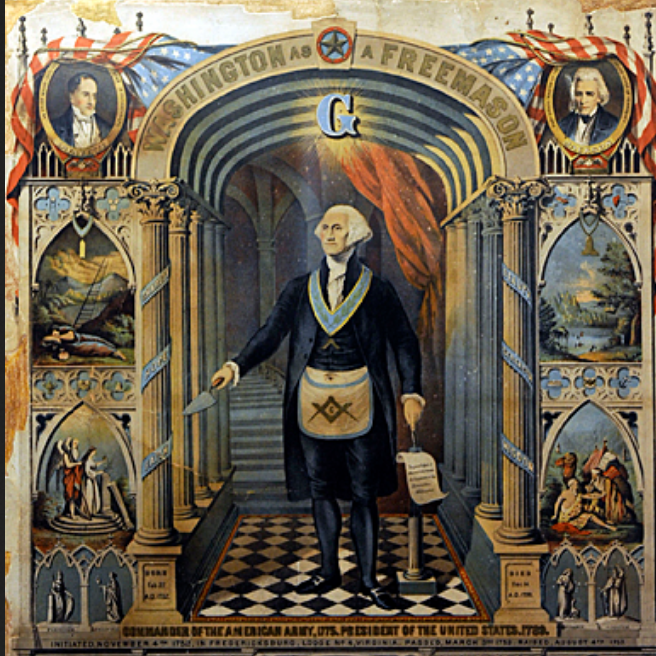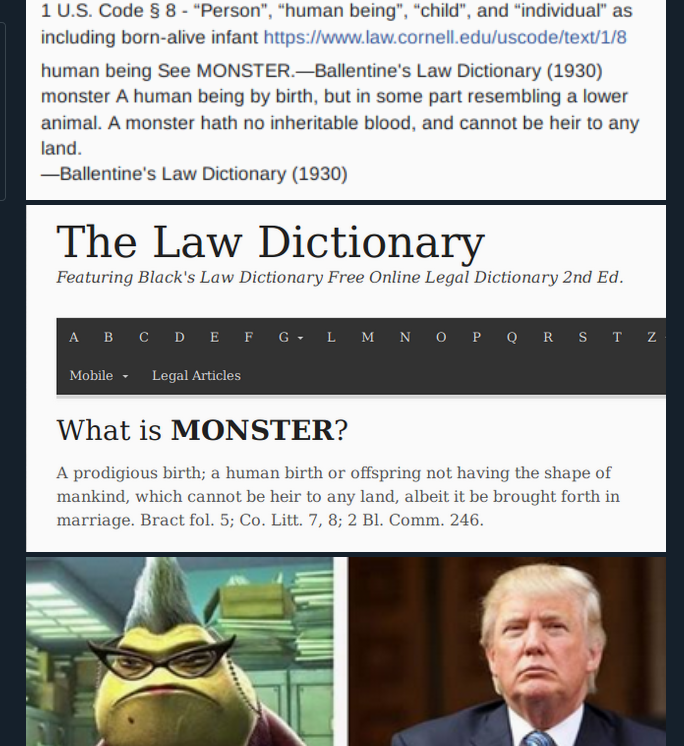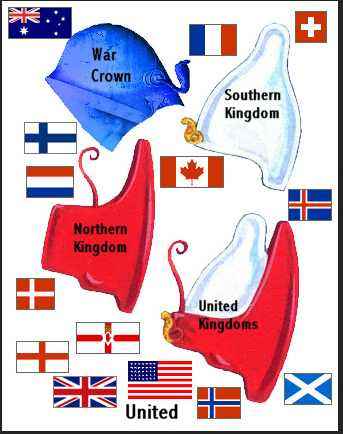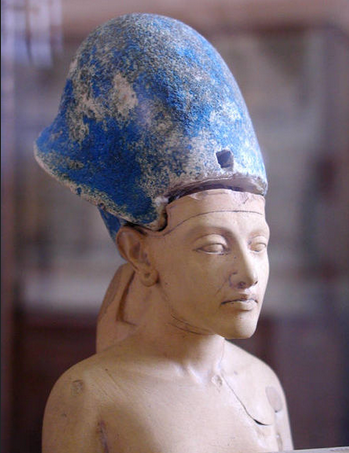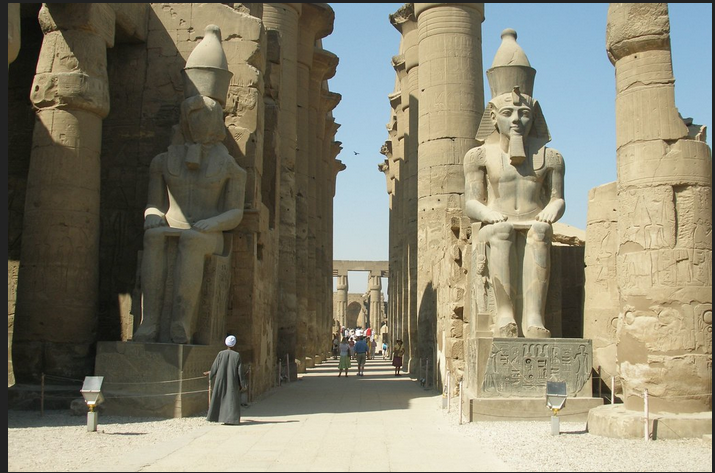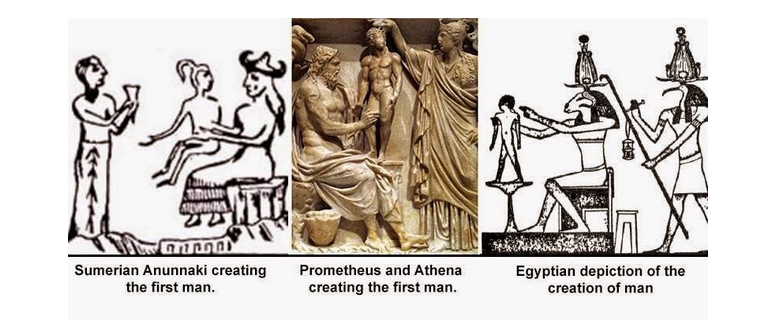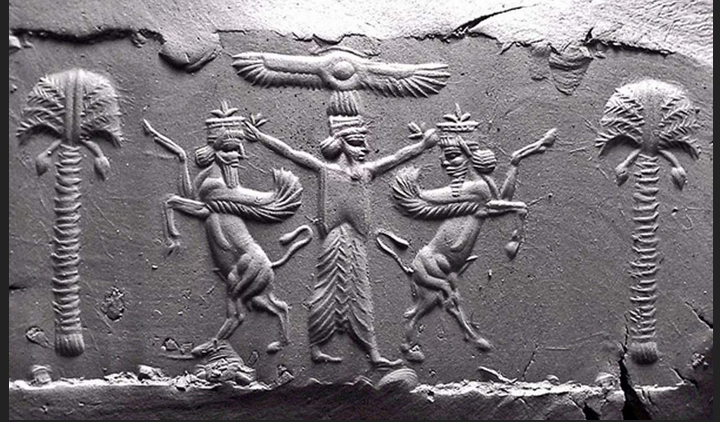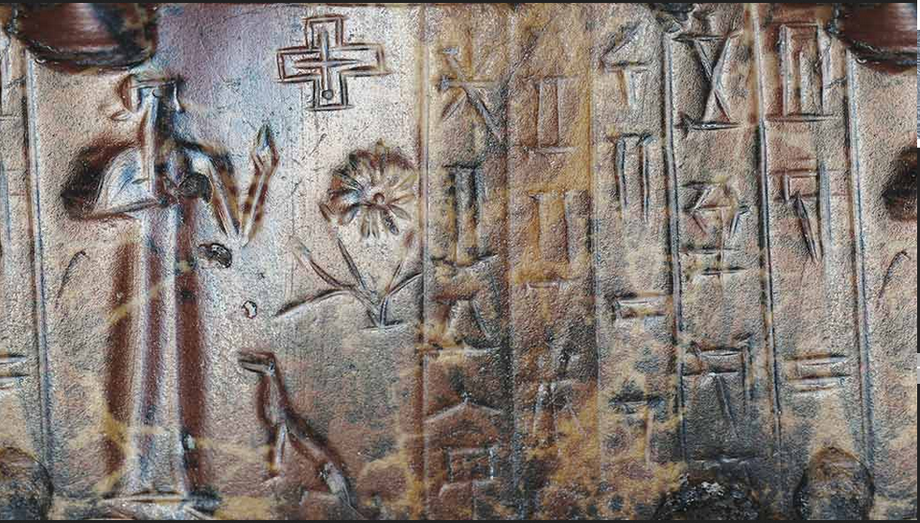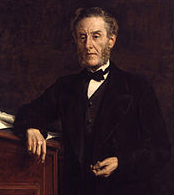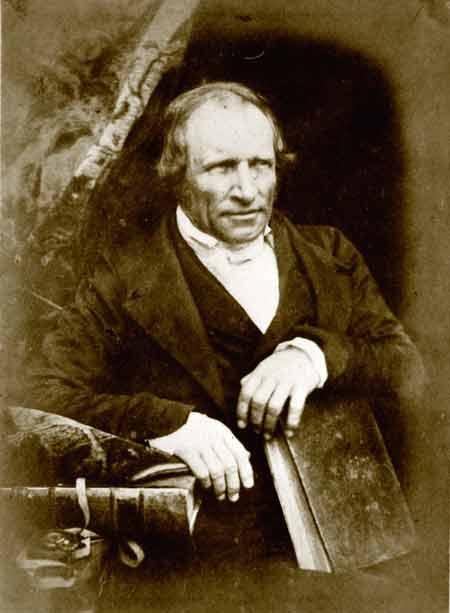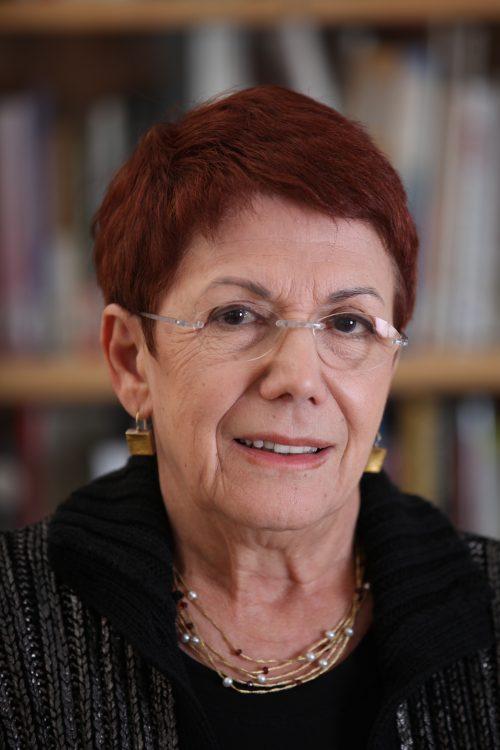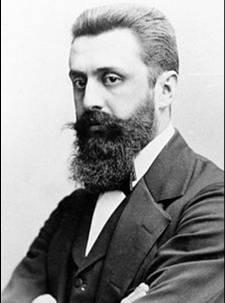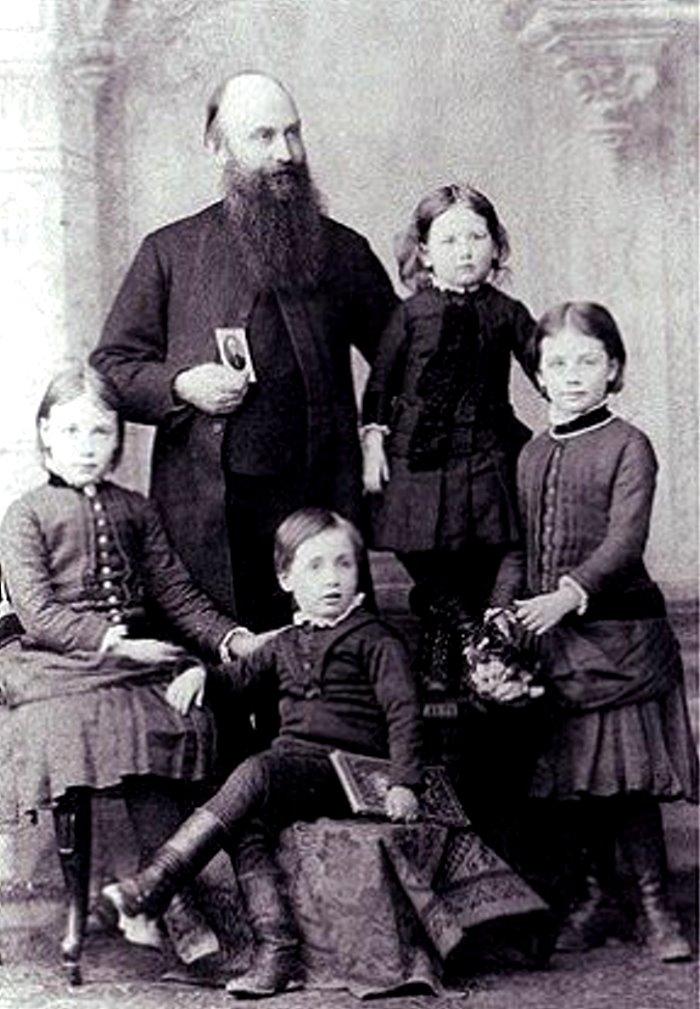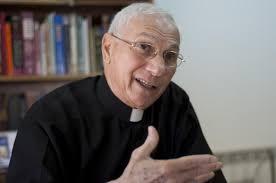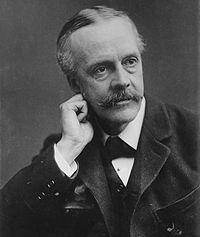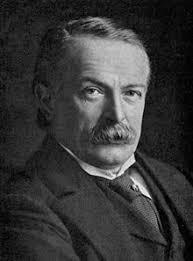FACT IS
EVIDENCE
Swiss - German Bloodlines are in all key positions in USA and similarly all over the world
ie : Potus
likes of Bush Trump 0bama FDR
Cia Dulles
Fbi Hoover
Fed Volker
Rockefeller
ALL from THE SAME Region
Swiss Bavaria Palatine
Swiss - German Bloodlines are in all key positions in USA and similarly all over the world
ie : Potus
likes of Bush Trump 0bama FDR
Cia Dulles
Fbi Hoover
Fed Volker
Rockefeller
ALL from THE SAME Region
Swiss Bavaria Palatine
Descent = Bloodline
The last stronghold of the Templars fell on May 18th, 1291, two months later Switzerland was founded templars were the first bankers and still are , they are also Pharaoh bloodline hence the Egyptian symbology but ill come back too that

Switzerland, Knights Templars and Nazis Theatrically, the Templars disappeared off the scene in 1307, after having secured their future by founding Switzerland in 1291.
During this year, the last ofthe Crusades and the final "retreat" took place, escaping to Europe and Switzerland; thereafter calling the latter Sui-Isse
(Soeurs Isis) or Schw(e)-Iss (Schwester Isis).
During the Crusades, the Templars massively butchered civilians in Jerusalem; then butchered some of the later generations in 1933-1945.
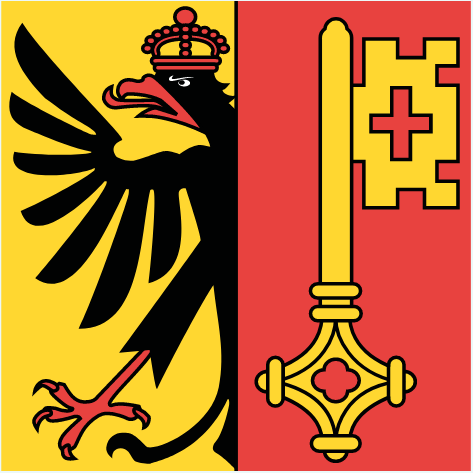
-----------------------------------------------------------------------------------------------------------------------------------------------------
these trucks do tend to consume a lot of petrol, they are "gas-guzzlers" so possibly the real reason for the Gulf War was to seize the mineral resources of the "skinnies", as they call the "sand-niggers" of the Arab world --
or possibly because the Arab world was about to dump the dollar and adopt the Euro. Wow, that would have been such an evil thing to do!
ok lets get some facts on London
+++++++++++++++++++++++++++++++++++++++++++++++++++++++++++++++++++++
Coat of Arms of The City of London
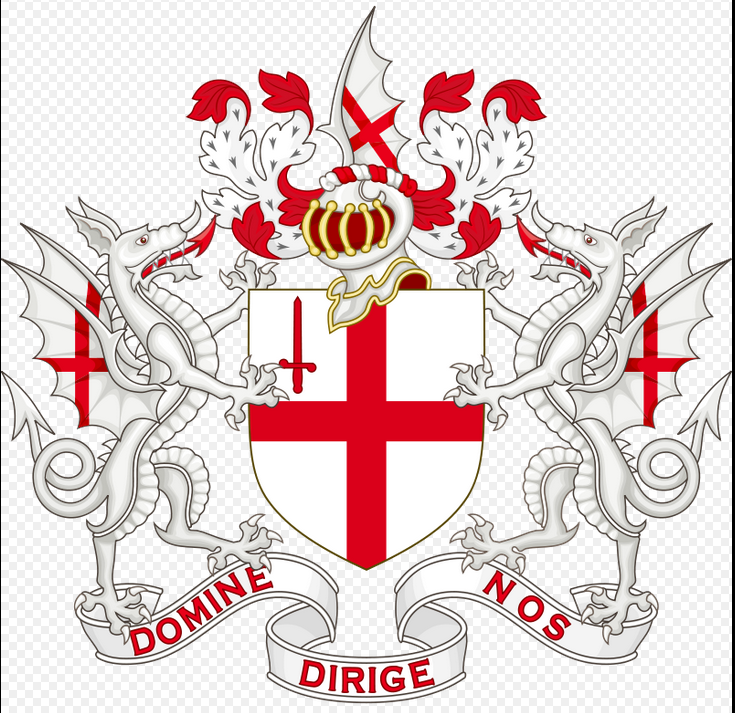
Motto: Domine Dirige Nos ("O Lord direct us")
City of London has existed in different forms for well over 2000 years and predates Roman times , who building on the existing created a fortified walled City . It is older than the country of Great Britain and has never been conquered since the Romans , this is why it has been not been part of any kingdom .
It is not a soviregn state in the same way as Vatican City nor is it under the control any one family or Pope
the fact it is a corporation should really be enough to make that obvious
so I will leave that there as there is a lot of history on the way for the reader too digest in order that are able to understand and see the truth currently hidden from them in plain sight ,
if you require a more detailed explanation
these two 5 minute videos explain it all brilliantly
City of London Corporation 1647 CLICK TO VIEW
THE CROWN is the UK GOV
and has been so since The Bill of Rights was created
as you will learn
ANY WAY - BACK 2
CITY OF LONDON
FULL TEXT AND MORE NAMES
http://www.british-history.ac.uk/no-series/acts-ordinances-interregnum/pp1042-1045
https://www.british-history.ac.uk/search?query=city%20of%20london%20corporation
https://www.cityoflondon.gov.uk/Pages/default.aspx
https://en.wikipedia.org/wiki/City_of_London_Corporation
+++++++++++++++++++++++++++++++++++++++++++++++++++++++++++++++++++++
Bank of England :
William Paterson FOUNDER Bank of England
Born in Tinwald, Dumfriesshire, SCOTLAND Paterson was brought up in England from an early age.
By 1686 he was established in London as a merchant and member of the Merchant Taylors' Company.
In 1691 he proposed the foundation of the Bank of England, becoming one of its first directors after its establishment in 1694.
https://t.co/pnOJfoHkrO
https://en.m.wikipedia.org/wiki/Bank_of_England
England's crushing defeat by France, the dominant naval power, in naval engagements culminating in the 1690 Battle of Beachy Head, became the catalyst for England rebuilding itself as a global power.
England had no choice but to build a powerful navy. No public funds were available, and the credit of William III's government was so low in London that it was impossible for it to borrow the £1,200,000 (at 8% p.a.) that the government wanted.
To induce subscription to the loan, the subscribers were to be incorporated by the name of the Governor and Company of the Bank of England.
The Bank was given exclusive possession of the government's balances, and was the only limited-liability corporation allowed to issue bank notes.The lenders would give the government cash (bullion) and issue notes against the government bonds, which can be lent again.
The £1.2m was raised in 12 days; half of this was used to rebuild the navy.
As a side effect, the huge industrial effort needed, including establishing ironworks to make more nails and advances in agriculture feeding the quadrupled strength of the navy, started to transform the economy.
This helped the new Kingdom of Great Britain –England and Scotland were formally united in 1707 -
Money Supply
The 1844 Bank Charter Act tied the issue of notes to the gold reserves and gave the Bank sole rights with regard to the issue of banknotes.
Private banks that had previously had that right retained it, provided that their headquarters were outside London and that they deposited security against the notes that they issued.
A few English banks continued to issue their own notes until the last of them was taken over in the 1930s. Scottish and Northern Irish private banks still have that right The bank acted as lender of last resort for the first time in the panic of 1866
The last private bank in England to issue its own notes was Thomas Fox's Fox, Fowler and Company bank in Wellington, which rapidly expanded, until it merged with Lloyds Bank in 1927.
They were legal tender until 1964. There are nine notes left in circulation; one is housed at Tone Dale House Wellington.
Britain remained on the gold standard until 1931, when the gold and foreign exchange reserves were transferred to the Treasury; however, they continued to be managed by the Bank.
During the governorship of Montagu Norman, from 1920 to 1944, the Bank made deliberate efforts to move away from commercial banking and become a central bank.
The chairman, David de Rothschild, said: "Our income from commodities trading in London, including gold, has fallen as a percentage of our total income in each of the past five years. Following a strategic review of our activities we have concluded that this is no longer a core area of activity and have, therefore, decided to withdraw from the market.
As part of the decision,
Rothschild will no longer take part in the twice-daily London Gold Fixing, which it currently chairs and which has been held in its offices since 1919.
Rothschild's roots lie in gold. Its origins date back to 1743 when a German goldsmith, Amshall Moses Bower, opened a counting house in Frankfurt.
By the end of the 18th century Rothschild was lending to governments and helped to finance the Napoleonic wars in the early 19th century. Nathan Rothschild paid for an attack on France by the Duke of Wellington by smuggling gold through France.
Through its command of gold Rothschild effectively became paymaster to the British Army. After a run on gold, causing an economic crisis and the collapse of 145 banks Rothschild shipped £10m of gold and rescued the Bank of England acquiring the lease of the Royal Mint Refinery in 1852, refining bullion until the sale of the business in 1967.
In the late nineteenth century N M Rothschild and Sons specialized in the finance of mining companies, notably De Beers, through the Exploration Company of which the bank was a founder, and also acted as bankers to the governments of Brazil, Chile and Egypt.
By the end of the 19th century Rothschild had twice bailed out the US government when its gold reserves fell to what were regarded as dangerously low levels.
After the First World War, the victorious governments were anxious to stabilize the price of gold, and asked Rothschild to organise what became the London Gold Fixing.
Every day for 85 years, representatives of the five leading London gold dealers had met at Rothschild's offices in St Swithin's Lane to fix the price
https://www.geni.com/people/Moses-Rothschild/6000000008827931559
https://www.independent.co.uk/news/business/news/rothschild-the-bank-built-on-gold-quits-market-56047.html
+++++++++++++++++++++++++++++++++++++++++++++++++++++++++++++++++++++++++++++++++
--------------------------------------------------------------------------------------------------------------------------
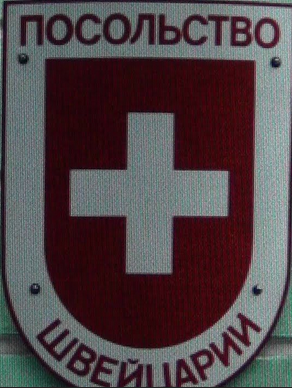
The last stronghold of the Templars fell on May 18th, 1291, two months later Switzerland was founded
Knights templar were the first bankers
and still are ,
they are also Pharaoh bloodline hence the Egyptian symbology
but ill come back too that
THE HEAD OF THE SNAKE - bank for central banks
Bank for International Settlements (BIS) Basel, Switzerland serves as a bank for central banks
wholly owned by BIS members (central banks) which "fosters international monetary and financial cooperation and serves as a bank for central banks".
The BIS carries out its work through its meetings, programmes and through the Basel Process – hosting international groups pursuing global financial stability and facilitating their interaction. It also provides banking services, but only to central banks and other
international organizations. It is based in Basel, Switzerland, with representative offices in Hong Kong and Mexico City.
.

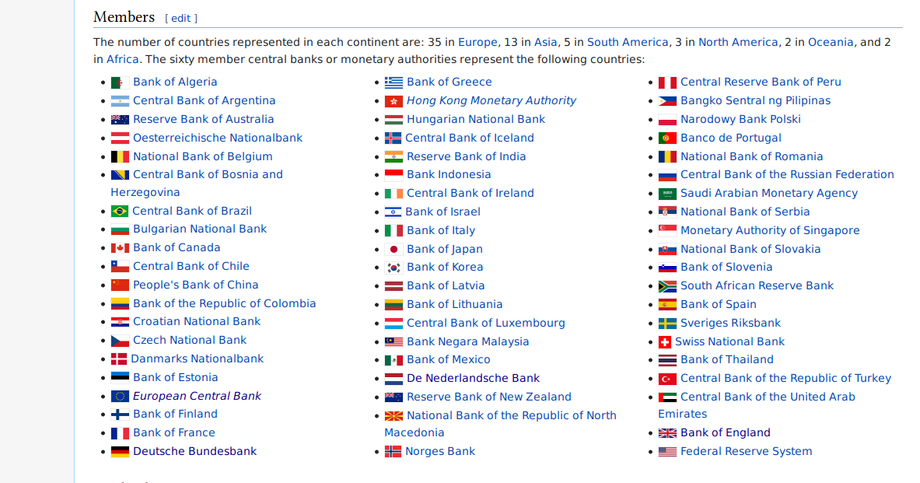
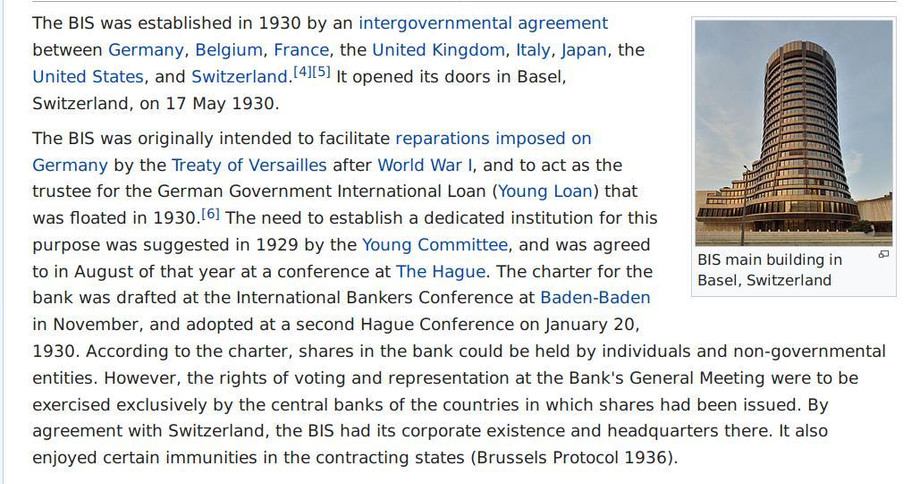
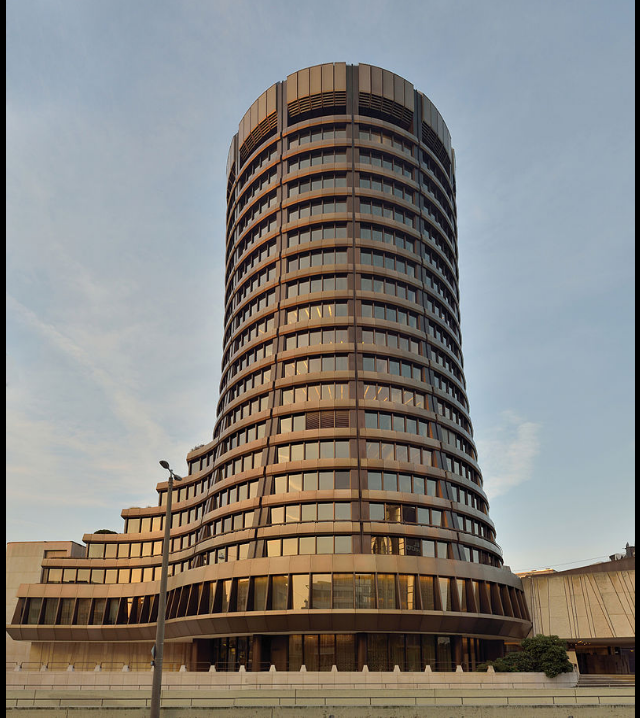

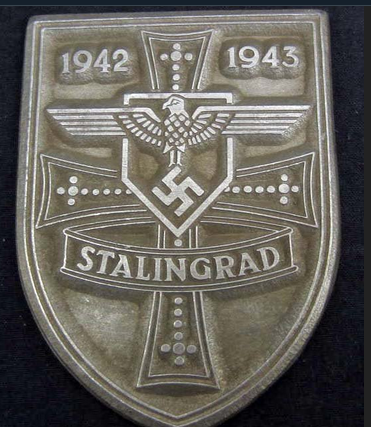
The Rothschilds was the first of three stridently antisemitic movies made in 1940 under the Nazi regime. A purportedly "historical" account of the Rothschild family's rise to fortune, set mostly in Great Britain during the Napoleonic wars, the movie reflected a wildly ambitious racial-political agenda.
Beyond its indictment of "Jewish" intrigue and avarice, The Rothschilds aimed to show the "Judafication" of British society at Rothschild hands, and thus demonstrate why, in Joseph Goebbels' words, Britons had become "the Jews among Aryans."
Yet the film's dramatic conventions did not always mesh with its racial politics, and when the film was released in July 1940, German audiences were left unclear as to just who they were mainly supposed to hate.
Goebbels had it pulled from distribution; a year later, a much-revised version, purged of any conceivable sympathies for its British characters, was released.
The revamped movie was renamed The Rothschilds: Shares in Waterloo; But by the time of its re-release, the movie's moment had passed. Germany's air war with Britain was winding down to an inglorious end, while at home, a new, wildly popular film, Jud Süss, had become the regime's preferred vehicle for whipping up antisemitic feeling.
If, in the end, The Rothschilds proved a less effective incitement to hate, it wasn't for lack of trying. With its striking juxtaposition of Nazi social criticism and racial theory, its twin assaults upon Jewish and British character, and its deft recycling of many key myths surrounding the House of Rothschild, this film deserves far more notoriety than has been its due.
Directed by Erich Waschneck; Music by Johannes Müller; featuring Carl Kulmann, Hilde Weissner and Giesela Uhlen.
ttps://www.youtube.com/watch?v=3ANX9C5kucY
https://web.archive.org/watch?v=3ANX9C5kucY
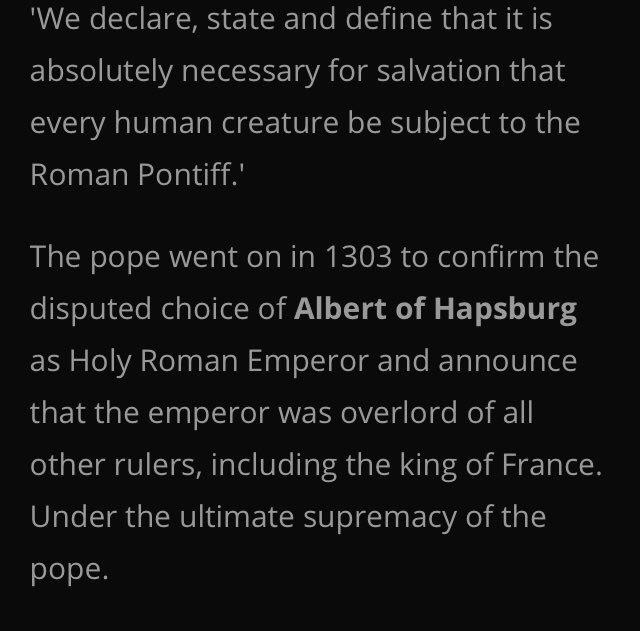
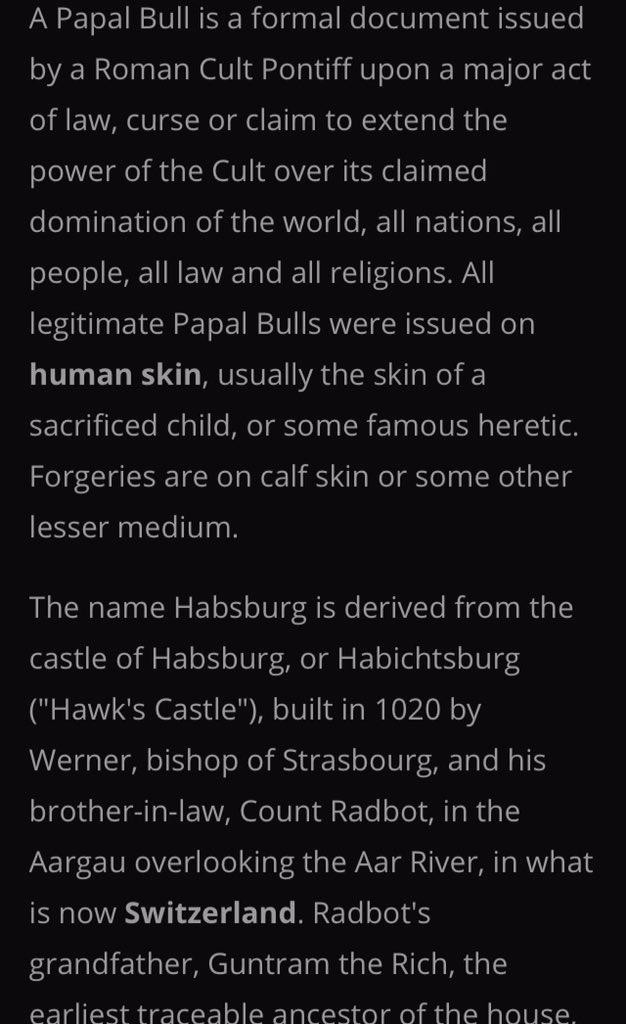
The last line reads: “Furthermore, we declare, we proclaim, we define that it is absolutely necessary for salvation that every human creature be subject to the Roman Pontiff.”
It is not only the first trust deed in history but also the largest trust ever conceived, as it claims the whole planet and everything on it, conveyed in trust.
""The spiritual man judgeth of all things and he himself is judged by no man" [1 Cor 2:15].
This authority, however, (though it has been given to man and is exercised by man), is not human but rather divine, granted to Peter by a divine word and reaffirmed to him (Peter) and his successors by the One Whom Peter confessed, the Lord saying to Peter himself, "Whatsoever you shall bind on earth, shall be bound also in Heaven" etc., [Mt 16:19].
Therefore whoever resists this power thus ordained by God, resists the ordinance of God [Rom 13:2], unless he invent like Manicheus two beginnings, which is false and judged by us heretical, since according to the testimony of Moses,it is not in the beginnings but in the beginning that God created heaven and earth [Gen 1:1].
Furthermore, we declare, we proclaim, we define that it is absolutely necessary for salvation that every human creature be subject to the Roman Pontiff.! "
https://www.ewtn.com/library/PAPALDOC/B7UNAM.HTM
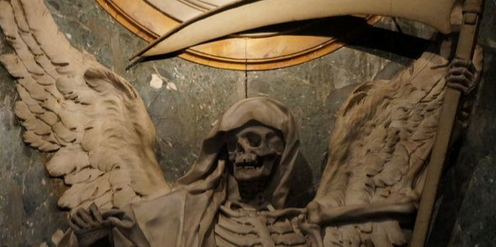
HUNDRED YEARS' WAR.
his name is given to the protracted conflict between France and England from 1337 to 1453, which continued through the reigns of the French kings Philip VI, John II, Charles V, Charles VI, Charles VII, and of the English kings Edward III, Richard II, Henry IV, Henry V and Henry VI.
http://www.luminarium.org/encyclopedia/100years.htm
In Basel, Switzerland, Calvin brought out the first edition of his Institutes of the Christian Religion in 1536, the first systematic, theological treatise of the new reform movement. Calvin agreed with Luther’s teaching on justification by faith. However, he found a more positive place for law within the Christian community than did Luther.
In Geneva, Calvin was able to experiment with his ideal of a disciplined community of the elect. Calvin also stressed the doctrine of predestination and interpreted Holy Communion as a spiritual partaking of the body and blood of Christ. Calvin’s tradition merged eventually with Zwingli’s into the Reformed tradition, which was given theological expression by the (second) Helvetic Confession of 1561.
The Reformation spread to other European countries over the course of the 16th century. By mid century, Lutheranism dominated northern Europe. Eastern
The Thirty Years’ War was a 17th-century religious conflict fought primarily in central Europe. It remains one of the longest and most brutal wars in human history, with more than 8 million casualties resulting from military battles as well as from the famine and disease caused by the conflict. The war lasted from 1618 to 1648, starting as a battle among the Catholic and Protestant states that formed the Holy Roman Empire.
However, as the Thirty Years’ War evolved, it became less about religion and more about which group would ultimately govern Europe. In the end, the conflict changed the geopolitical face of Europe and the role of religion and nation-states in society.
Still, the Holy Roman Empire may have controlled much of Europe at the time, though it was essentially a collection of semi-autonomous states or fiefdoms. The emperor, from the House of Habsburg, had limited authority over their governance.
This radically altered the balance of power in Europe and resulted in reduced influence over political affairs for the Catholic Church, as well as other religious groups.
As brutal as the fighting was in the Thirty Years’ War, hundreds of thousands died as a result of famine caused by the conflict as well as an epidemic of typhus, a disease that spread rapidly in areas particularly torn apart by the violence.
Historians also believe the first European witch hunts began during the war, as a suspicious populace attributed the suffering throughout Europe
https://www.history.com/topics/reformation/thirty-years-war
The English Civil Wars are traditionally considered to have begun in England in August 1642, when Charles I raised an army against the wishes of Parliament, ostensibly to deal with a rebellion in Ireland. But the period of conflict actually began earlier in Scotland, with the Bishops’ Wars of 1639–40, and in Ireland, with the Ulster rebellion of 1641.
Throughout the 1640s, war between king and Parliament ravaged England, but it also struck all of the kingdoms held by the house of Stuart—and, in addition to war between the various British and Irish dominions, there was civil war within each of the Stuart states. For this reason the English Civil Wars might more properly be called the British Civil Wars or the Wars of the Three Kingdoms.
The wars finally ended in 1651 with the flight of Charles II to France and, with him, the hopes of the British monarchy.
Desperate to protect their revolution at home, the Covenanters insisted upon the establishment of Presbyterianism in England and in return agreed to send an army of 21,000 men to serve there. These troops played a critical role at Marston Moor, with the covenanting general, David Leslie, briefly replacing a wounded Oliver Cromwell in the midst of the action.
For his part, Charles looked to Ireland for support. However, the Irish troops that finally arrived in Wales after a cease-fire was concluded with the confederates in September 1643 never equaled the Scottish presence, while the king’s willingness to secure aid from Catholic Ireland sullied his reputation in England.
On December 26, 1647, Charles signed an agreement known as the Engagement with a number of leading Covenanters.In return for the establishment of Presbyterianism in England for a period of three years,the Scots promised to join forces with the English Royalists and restore the king to his throne.
Early in July 1648, a Scottish force invaded England, but the parliamentary army routed it at the Battle of Preston (August 17).
The execution of Charles I in January 1649 merely served to galvanize Scottish (and Irish) support for the king’s son, Charles II, who was crowned king of the Scots at Scone, near Perth, on January 1, 1651. Ultimately, the defeat of a combined force of Irish Royalists and Confederates at the hands of English Parliamentarians after August 1649 prevented the Irishmen from serving alongside their Scottish and English allies in the third English Civil War.
As it was, this war was largely fought on Scottish soil,
Oliver Cromwell and his New Model Army having invaded Scotland in July 1650. Despite being routed at the Battle of Dunbar (September 3, 1650), which Cromwell regarded as “one of the most signal mercies God hath done for England and His people,” the Scots managed to raise another army that made a spectacular dash into England. This wild attempt to capture London came to nothing.
Cromwell’s resounding victory at Worcester (September 3, 1651) and Charles II’s subsequent flight to France not only gave Cromwell control over England but also effectively ended the wars of and the wars in the three kingdoms.
https://www.britannica.com/event/English-Civil-Wars
Chapter XXV.
Of the Church.
V. The purest Churches under heaven are subject both to mixture and error: and some have so degenerated, as to become no Churches of Christ, but synagogues of Satan. Nevertheless, there shall be always a Church on earth, to worship God according to His will.
VI. There is no other head of the Church, but the Lord Jesus Christ; nor can the Pope of Rome, in any sense, be head thereof; but is that Antichrist, that man of sin, and son of perdition, that exalteth himself, in the Church, against Christ and all that is called God.
Westminster confession of faith 1642 revoked the of authority of Catholic Church
and well read bit re antichrist
that was removed from US version .
The Glorious Revolution, also called “The Revolution of 1688” and “The Bloodless Revolution,” took place from 1688-1689 in England.
It involved the overthrow of the Catholic king James II, who was replaced by his Protestant Scots daughter Mary and her Dutch husband, William of Orange.
Motives for the revolution were complex and included both political and religious concerns.
The event ultimately changed how England was governed, giving Parliament more power over the monarchy and planting seeds for the beginnings of a political democracy.
King James II took the throne in England in 1685, during a time when relations between Catholics and Protestants were tense. There was also considerable friction between the monarchy and the British Parliament.
James, who was Catholic, supported the freedom of worship for Catholics and appointed Catholic officers to the army. He also had close ties with France a relationship that concerned many of the English people.
In 1687, King James II issued a Declaration of Indulgence, which suspended penal laws against Catholics and granted acceptance of some Protestant dissenters. Later that year, the king formally dissolved his Parliament and attempted to create a new Parliament that would support him unconditionally.
James’s daughter Mary, a Protestant, was the rightful heir to the throne until 1688 when James had a son, James Francis Edward Stuart, whom he announced would be raised Catholic.
The birth of James’s son changed the line of succession, and many feared a Catholic dynasty in England was imminent. The Whigs, the main group that opposed Catholic succession, were especially outraged.
The king’s elevation of Catholicism, his close relationship with France, his conflict with Parliament and uncertainty over who would succeed James on the English throne led to whispers of a revolt and ultimately the fall of James II.
William was already in the process of taking military action against England, and the letter served as an additional propaganda motive.
William of Orange assembled an impressive armada for the invasion and landed in Torbay, Devon, in November 1688.
King James, however, had prepared for military attacks and left London to bring his forces to meet the invading army. Several of James’s own men, including his family members, deserted him and defected to William’s side. In addition to this setback, James’s health was deteriorating.
James decided to retreat back to London on November 23. He soon announced that he was willing to agree to a “free” Parliament but was making plans to flee the country due to concerns for his own safety.
After this event, the monarchy in England would never hold absolute power again.With the Bill of Rights, the regent’s power was defined, written down, and limited for the first time. Parliament’s function and influence changed dramatically in the years following the revolution.
The event also had an impact on the colonies in North America. The colonists were freed of strict, anti-Puritan laws after King James was overthrown.
When news of the revolution reached the Americans, several uprisings followed, including the Boston Revolt, Leisler’s Rebellion and the Protestant Revolution in Maryland
.Since the Glorious Revolution, Parliament’s power in Britain has continued to increase, while the monarchy’s influence has waned.
There’s no doubt this important event helped set the stage for the United Kingdom’s present-day political system and government.
https://www.history.com/topics/british-history/glorious-revolution
So now there is no Vatican power be it military or in law over Britain _there is a bloodlines / masonic connection but its not the way its being put out ......reason for that is Swiss German Nazi literally .
OSS CiAA CiA SS STazi Operation paperclip / Sunrise
*********************** THIS IS IMPORTANT AND WILL BE OF KEY IMPORTANCE IF YOU ARE TO UNDERSTAND OF THE PUZZLE HIDDEN IN PLAIN SIGHT AS AS WE CONTINUE FURTHER ON IN PART *******************************
Rothschild family have 1 title of ACTUAL nobility
Austrian Habsburg in House of Farnase , granted by the last Emperor of THE HOLY Roman Empire
https://en.wikipedia.org/wiki/House_of_Farnese
The Habsburgs did not formally abandon all hope of returning to power until Otto von Habsburg, the eldest son of Charles I, on 31 May 1961 renounced all claims to the throne.
https://en.wikipedia.org/wiki/House_of_Habsburg
#
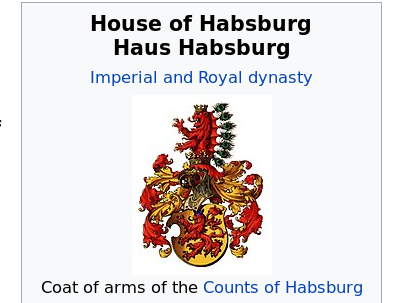
#'
In 1822, Carl Rothschild and his four brothers were each granted the title of baron, or Freiherr, by His Imperial Majesty Kaiser Franz I of Austria.
In 1829, Carl was appointed consul-general of Sicily at Frankfurt and in January 1832 the banker was given a ribbon and star of the Sacred Military Constantinian Order of Saint George at a ceremony with the new Roman Catholic Pope, Gregory XVI.
Majesty Kaiser Franz I of Austria
Francis II was the last Holy Roman Emperor, ruling from 1792 until 6 August 1806, when he dissolved the Holy Roman Empire after the decisive defeat at the hands of the First French Empire led by Napoleon at the Battle of Austerlitz.
In 1804, he had founded the Austrian Empire and became Francis I, the first Emperor of Austria, ruling from 1804 to 1835, so later he was named the Doppelkaiser (double emperor) in history.
For the two years between 1804 and 1806, Francis used the title and style by the Grace of God elected Roman Emperor, ever Augustus, hereditary Emperor of Austria and he was called the Emperor of both the Holy Roman Empire and Austria.
He was also Apostolic King of Hungary, Croatia and Bohemia as Francis
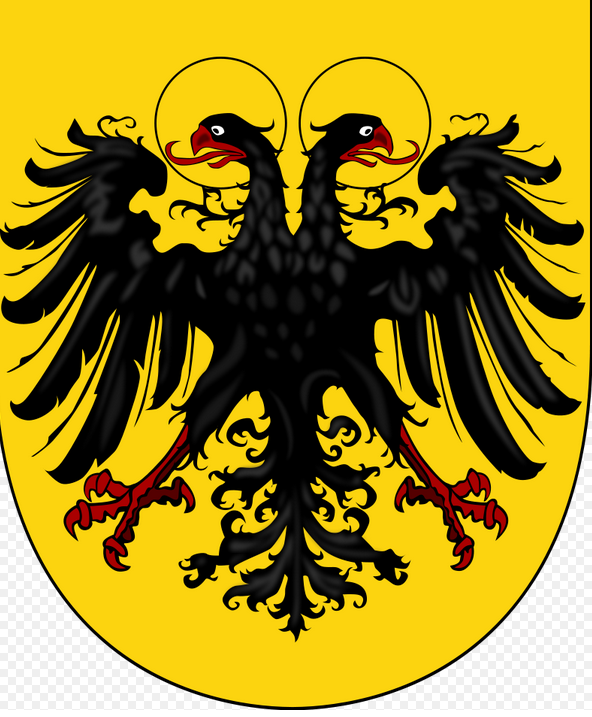
His political influence came through Lord Palmerston. Shaftesbury’s wife was probably Palmerston’s daughter, he was certainly her stepfather.
Shaftesbury placed an advert in the Times in 1840 proposing a return of the Jews to Palestine, sent a memorandum round to the Protestant monarchs of Europe and moved to get a British Consul and Bishop installed in Jerusalem.
But Shaftesbury was not alone, he was just the politically best connected.Anthony Ashley Cooper, Earl of Shaftesbury was an Evangelical Christian, part of the revival of Evangelical faith that swept Britain in the early 19th century.
Religious motives prompted him to initiate charity works and further social legislation, including the ten hour day act. At the same time, he was keen for the restoration of the Jews, and their conversion to Christianity.

It was a Scottish clergyman, Rev Alexander Keith, who was probably the first in 1843 to coin the phrase ‘A land without a people, for a people without a land.’
Shaftesbury was also one of the founders of the Palestine Exploration Fund which is some people’s minds was to find the archaeological support for the stories in the Bible. At their first meeting in 1865 the Chairman, the Archbishop of York included in his speech.
‘This country of Palestine belongs to you and to me, it is essentially ours. It was given to the Father of Israel in the words: ‘ Walk through the land in the length of it, and in the breadth of it, for I will give it unto thee.’ We mean to walk through Palestine in the length and in the breadth of it, because that land has been given unto us….’
This gives a flavour of thinking at that time
But evangelicals also appear to have played a significant role in the development of Jewish thinking.
Anita Shapira the respected Zionist historian writes:
‘… until the nineteenth century the Bible was considered secondary to Jewish oral law… It was the Protestants who discovered the Bible …Even the idea of the Jews returning to their ancient homeland as the first step to world redemption seems to have originated among a specific group of evangelical English Protestants that flourished in England in the 1840s; they passed this notion onto Jewish circles.
It might seem that the idea of returning to the Land of Israel had been part of the Jewish people’s spiritual beliefs from time immemorial…. But there was an essential difference between this yearning and Zionism. … Instead of passively awaiting the coming of the Messiah, the Jewish people would take their fate into their own hands and transform their situation through their own action”.
Theodor Herzl, who could be looked on as a founder of political Zionism, grew up in the environment of anti-Jewish pogroms post 1881 following the assassination of Tsar Alexander II. As a journalist he covered the Dreyfus affair in Paris where Dreyfus a Jewish captain in the French army was wrongly convicted of spying for Germany. Herzl returned to Vienna and wrote Der Judenstaat. [The Jewish State]. He tried to meet the Kaiser but failed.
William Hechler the restorationist chaplain of the English embassy in Vienna saw Herzl’s book in a bookshop and introduced himself to the author and offered to help him. Hechler had been the tutor to Prince Ludwig, the son and heir of Frederick I, the Grand Duke of Baden and had developed very close links with the family
He had written a book on the restoration of the Jews to Palestine[3] in 1882. He offered to introduce Herzl to the German political leadership such as the Grand Duke of Baden and the Kaiser. But he also introduced him to the European leadership as well.
Lewis writes: ‘In a remarkably short time, Herzl moved from being an obscure Jewish writer to the international stage’
Naim Ateek the founder of Sabeel in a sermon in Bethlehem recently said
‘In fact western Christian Zionists must share the responsibility for the creation of Zionism and in the establishment of the state of Israel. One of the closest friends of Theodor Herzl, the founder of political Zionism, was an Anglican priest by the name of William Hechler. Rev. Hechler was instrumental in inspiring and educating Herzl on those passages of the Bible that, he believed, call for the return of Jews to Palestine in fulfillment of prophecy’.
Hechler was critical to the development of Zionism.
I wonder whether the contacts, facilitated by Hechler, may have enabled Herzl to get Lloyd George’s law firm to act for him in 1903 on the Uganda scheme, where Britain raised the possibility of a Jewish homeland in Uganda.
Also one wonders how Weizmann could obtain introductions to the British political leadership, such as meeting Churchill in 1905 and Balfour in 1906 when he only arrived in the country in 1904. Particularly as Shapira comments that Zionism at this time represented ‘a negligible percentage of World Jewry
It is commonly claimed that the Balfour Declaration was issued because of war time needs, such as getting America into the war, although America joined the war 6 months before the Declaration.
Keeping Russia in the war against Germany was another.
( this aim evaporated almost immediately when Lenin took over in Russia 5 days after the declaration was signed and made a peace treaty with Germany.).
Once the war had been won some of the claimed reasons were of little relevance. However, there was another component of the reasons for the declaration which did not get included in official documents. This was the beliefs of the people making the decisions. Geoffrey Alderman wrote in the Jewish Chronicle
“The Balfour Declaration was born out of religious sentiment. Arthur Balfour was a Christian mystic who believed that the Almighty had chosen him to be an instrument of the Divine Will… perhaps as a precursor to the Second Coming of the Messiah”. Tom Segev wrote: ‘The Declaration was the product of neither military nor diplomatic interests but of prejudice, faith and sleight of hand. The men who sired it were Christian and Zionist and, in many cases, anti-Semitic.’
Rabbi Danny Rich
‘I am not arguing for Zionism as a Christian idea, but it is a very interesting point to make. Many of the non Jews who supported Zionism did so out of their Christian understanding of what was happening. ‘
But is this a correct assessment of the thinking of Balfour, Lloyd George and the political elite at the time?
Balfour was brought up in an evangelical environment. Balfour’s mother, Lady Blanche was from one of the wealthiest families in Britain being the sister of Lord Salisbury who served three times as Prime Minister.
She was an earnest evangelical, giving her son daily Bible study but also distributing Gospel tracts at the East Linton railway station near the Balfour Estate just outside Edinburgh
Lloyd George,
though from a totally different social class from Balfour, was brought up in a Welsh Baptist evangelical environment.
Speaking to the Jewish Historical Society in 1925 he said:
I was brought up in a school where I was taught far more history of the Jews than about my own land. I could tell you all the kings of Israel. But I doubt if I could have named half a dozen of the Kings of England, and not more of the Kings of Wales…
We were thoroughly imbued with the history of your race in the days of its greatest glory.
Active negotiations with the Zionists started once Lloyd George became Prime Minister
(note he had acted for the Zionists in 1903).
The Zionists drafted what became the Balfour Declaration and there were several drafts submitted to the cabinet.
It was not until the Autumn of 1917 that the second and third clauses protecting the rights of the existing population and Jews in other countries were added.
It was finally agreed on the 31st October 1917 and signed on Nov 2nd.
Curzon and Montagu, the only two English in the cabinet and Montagu the only Jew, were both against it.
The majority of the cabinet were from the Celtic fringe and had been raised in evangelical homes. There were three Scottish members of whom Balfour was one.
Calvinist forms of evangelical Protestantism dominated the family backgrounds of the majority of the cabinet members.
It is very difficult to quantify the relative importance of Christian evangelical beliefs in the attitudes to the Zionist pressures. But it is certainly true that the majority of the political elite believed the Bible literally.
As I mentioned earlier Lloyd George’s law firm acted for Herzl in 1903. Weizmann then arrived in Britain in 1904. He was, as well as a chemist, a highly effective propagandist and he made it his business to make contacts with the British leadership.
Thus when Lloyd George took over as Prime Minister and was favourable to a Jewish home in Palestine Weizman already knew the main players and was able to use the pressures of the war to press the Zionist case, even though Zionists were, negligibly minority of World Jewry at the time.
Edwin Montague, the only Jew in the cabinet, the Chief Rabbi at the time and many of the assimilated Jews in Britain were very much against the Zionist ideas.
See Robert Cohen
Britain continued its support for the Zionist project after the Declaration.
In 1915 we had promised Sharif Hussein support for an Arab state including Palestine if he helped us against the Ottomans. He kept his side of the bargain, we reneged on ours. The promise was effectively swept under the carpet.
The Anglo French Declaration in 1918 promised the countries released from Turkish rule would be able to choose their own governments.
All but Palestine were allowed to do so.
In 1919 at the request of President Wilson the King Crane Commission was set up to find out what the inhabitants of the Middle East wanted. It was clear they did not want the Zionist project. Publication of this report was delayed until after the Mandate had been agreed and like McMahon’s promise to Hussein, swept under the carpet
In 1919 Balfour commented that
‘Palestine presented a unique situation. We are dealing not with the wishes of an existing community but are consciously seeking to re-constitute a new community and definitely building for a numerical majority in the future’
Ernest Richmond found in 1923 that the Chief Secretary, his immediate superior, Wyndam Deedes, was a committed believer in Zionism as the fulfilment of Old Testament prophecies.
As was Major Ord Wingate who trained Jewish men in guerrilla techniques against the Arabs, in the Special Night Squads
Christian Zionism was not just important at the time of the writing of the Balfour Declaration.
Lord Shaftesbury was the most active restoration lobbyist. 'The inherent vitality,' he wrote, 'of the Hebrew race reasserts itself with amazing persistence. Its genius, to tell the truth, adapts itself more or less to all the currents of civilization all over the world, nevertheless always emerging with distinctive features and a gallant recovery of vigor."
Shaftesbury told his biographer, Edwin Hodder, that belief in the Second Advent, "has always been a moving principle in my life, for I see everything going on on in the world subordinate to this great even." Privately, he asked, "Why do we not pray for it every time we hear a clock string?" Hodder stated that since the return of the Jews was required for the Second Advent, Shaftesbury "never had a shadow of a doubt that the Jews were to return to their own land...It was his daily prayer, his daily hope. 'Oh pray for the peace of Jerusalem!' were the words engraven on the ring he always wore on his right hand.' (Tuchman, Bible and Sword p 178).
Lord Shaftesbury lobbied for the idea of return of the Jews with Prime Minister Palmerston and his successors in the government and was incidentally instrumental in the considerable assistance and protection against oppression that Britain henceforth extended to the Jews already living in Palestine.
In August 1840 the Times reported that the British government was considering Jewish restoration. It added that "a nobleman of the Opposition" (apparently Lord Shaftesbury) was making inquiries to determine:

.
I shall have the honour to reply fully in a further note to your Excellency's note of the 9th instant, relative to the creation of an Arab State, but I should meanwhile be grateful if your Excellency could assure me that in those regions which, under the conditions recorded in that communication, become entirely French, or in which French interests are recognised as predominant, any existing British concessions, rights of navigation or development, and the rights and privileges of any British religious, scholastic, or medical institutions will be maintained.
His Majesty's Government are, of course, ready to give a reciprocal
assurance in regard to the British area.
2. Sir Edward Grey to Paul Cambon, 16 May 1916
I have the honour to acknowledge the receipt of your Excellency's note of the 9th instant, stating that the French Government accept the limits of a future Arab State, or Confederation of States, and of those parts of Syria where French interests predominate, together with certain conditions attached thereto, such as they result from recent discussions in London and Petrograd on the subject.
I have the honour to inform your Excellency in reply that the acceptance of the whole project, as it now stands, will involve the abdication of considerable British interests, but, since His Majesty's Government recognise the advantage to the general cause of the Allies entailed in producing a more favourable internal political situation in Turkey, they are ready to accept the arrangement now arrived at, provided that the co-operation of the Arabs is secured, and that the Arabs fulfil the conditions and obtain the towns of Homs, Hama, Damascus, and Aleppo.
It is accordingly understood between the French and British Governments---
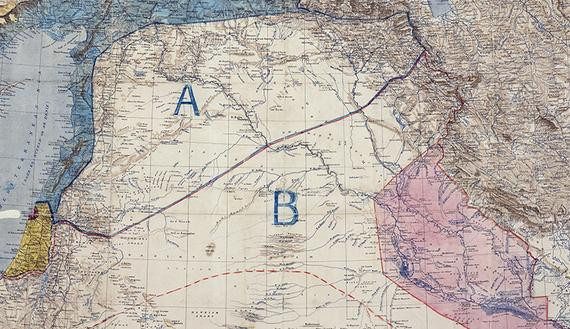
1. That France and Great Britain are prepared to recognize and protect an independent Arab State or a Confederation of Arab States in the areas (A) and (B) marked on the annexed map, under the suzerainty of an Arab chief. That in area (A) France, and in area (B) Great Britain, shall have priority of right of enterprise and local loans. That in area (A) France, and in area (B) Great Britain, shall alone supply advisers or foreign functionaries at the request of the Arab State or Confederation of Arab States.
2. That in the blue area France, and in the red area Great Britain, shall be allowed to establish such direct or indirect administration or control as they desire and as they may think fit to arrange with the Arab State or Confederation of Arab States. 3. That in the brown area there shall be established an international administration, the form of which is to be decided upon after consultation with Russia, and subsequently in consultation with the other Allies, and the representatives of the Shereef of Mecca.
4. That Great Britain be accorded (1) the ports of Haifa and Acre, (2) guarantee of a given supply of water from the Tigris and Euphrates in area (A) for area (B). His Majesty's Government, on their part, undertake that they will at no time enter into negotiations for the cession of Cyprus to any third Power without the previous consent of the French Government.
5. That Alexandretta shall be a free port as regards the trade of the British Empire, and that there shall be no discrimination in port charges or facilities as regards British shipping and British goods; that there shall be freedom of transit for British goods through Alexandretta and by railway through the blue area, whether those goods are intended for or originate in the red area, or (B) area, or area (A); and there shall be no discrimination, direct or indirect against British goods on any railway or against British goods or ships at any port serving the areas mentioned.
That Haifa shall be a free port as regards the trade of France, her dominions and protectorates, and there shall be no discrimination in port charges or facilities as regards French shipping and French goods. There shall be freedom of transit for French goods through Haifa and by the British railway through the brown area, whether those goods are intended for or originate in the blue area, area (A), or area (B), and there shall be no discrimination, direct or indirect, against French goods on any railway, or against French goods or ships at any port serving the areas mentioned.
6. That in area (A) the Baghdad Railway shall not be extended southwards beyond Mosul, and in area (B) northwards beyond Samarra, until a railway connecting Baghdad with Aleppo via the Euphrates Valley has been completed, and then only with the concurrence of the two Governments.
7. That Great Britain has the right to build, administer, and be sole owner of a railway connecting Haifa with area (B), and shall have a perpetual right to transport troops along such a line at all times.
It is to be understood by both Governments that this railway is to facilitate the connexion of Baghdad with Haifa by rail, and it is further understood that, if the engineering difficulties and expense entailed by keeping this connecting line in the brown area only make the project unfeasible, that the French Government shall be prepared to consider that the line in question may also traverse the polygon Banias-Keis Marib-Salkhab Tell Otsda-Mesmie before reaching area (B).
8. For a period of twenty years the existing Turkish customs tariff shall remain in force throughout the whole of the blue and red areas, as well as in areas (A) and (B), and no increase in the rates of duty or conversion from ad valorem to specific rates shall be made except by agreement between the two Powers.
There shall be no interior customs barriers between any of the above-mentioned areas. The customs duties leviable on goods destined for the interior shall be collected at the port of entry and handed over to the administration of the area of destination.
9. It shall be agreed that the French Government will at no time enter into any negotiations for the cession of their rights and will not cede such rights in the blue area to any third Power, except the Arab State or Confederation of Arab States without the previous agreement of His Majesty's Government, who, on their part, will give a similar undertaking to the French Government regarding the red area.
10. The British and French Governments, as the protectors of the Arab State, shall agree that they will not themselves acquire and will not consent to a third Power acquiring territorial possessions in the Arabian peninsula, nor consent to a third Power installing a naval base either on the east coast, or on the islands, of the Red Sea. This, however, shall not prevent such adjustment of the Aden frontier as may be necessary in consequence of recent Turkish aggression.
11. The negotiations with the Arabs as to the boundaries of the Arab State or Confederation of Arab States shall be continued through the same channel as heretofore on behalf of the two Powers.
12. It is agreed that measures to control the importation of arms into the Arab territories will be considered by the two Governments.
I have further the honour to state that, in order to make the agreement complete, His Majesty's Government are proposing to the Russian Government to exchange notes analogous to those exchanged by the latter and your Excellency's Government on the 26th April last. Copies of these notes will be communicated to your Excellency as soon as exchanged.
I would also venture to remind your Excellency that the conclusion of the present agreement raises, for practical consideration, the question of the claims of Italy to a share in any partition or rearrangement of Turkey in Asia, as formulated in article 9 of the agreement of the 26th April, 1915, between Italy and the Allies.
His Majesty's Government further consider that the Japanese Government should be informed of the arrangement now concluded.
H. M. Government regards as essential for the realisation of this principle the grant of internal autonomy to the Jewish nationality in Palestine, freedom of immigration for Jews, and the establishment of a Jewish National Colonising Corporation for the re-settlement and economic development of the country.
The conditions and forms of the internal autonomy and a charter for the Jewish National Colonising Corporation should, in the view of H. M. Government, be elaborated in detail and determined with the representatives of the Zionist Organisation.
It was suggested that a question raising such important issues as to the future of Palestine ought, in the first instance, to be discussed with our Allies, and more particularly with the United States.
On the question of submitting Lord Milner’s draft for the consideration of the United States Government, Mr. Montagu urged that the use of the phrase “the home of the Jewish people” would vitally prejudice the position of every Jew elsewhere and expand the argument contained in his Memorandum. Against this it was urged that the existence of a Jewish State or autonomous community in Palestine would strengthen rather than weaken the situation of Jews in countries where they were not yet in possession of equal rights, and that in countries like England, where they possessed such rights and were identified with the nation of which they were citizens, their position would be unaffected by the existence of a national Jewish community elsewhere. The view was expressed that, while a small influential section of English Jews were opposed to the idea, large numbers were sympathetic to it, but in the interests of Jews who wished to go from countries where they were less favourably situated, rather than from any idea of wishing to go to Palestine themselves.
With reference to a suggestion that the matter might be postponed, the Acting Secretary of State for Foreign Affairs pointed out that this was a question on which the Foreign Office had been very strongly pressed for a long time past. There was a very strong and enthusiastic organisation, more particularly in the United States, who were zealous in this matter, and his belief was that it would be of most substantial assistance to the Allies to have the earnestness and enthusiasm of these people enlisted on our side. To do nothing was to risk a direct breach with them, and it was necessary to face this situation.
The War Cabinet decided that–
The views of President Wilson should be obtained before any declaration was made, and requested the Acting Secretary of State for Foreign Affairs to inform the Government of the United States that His Majesty’s Government were being pressed to make a declaration in sympathy with the Zionist movement, and to ascertain their views as to the advisability of such a declaration being made.
What was at the back of the Zionist Movement was the intense national consciousness held by certain members of the Jewish race. They regarded themselves as one of the great historic races of the world, whose original home was Palestine, and these Jews had a passionate longing to regain once more this ancient national home, Other Jews had become absorbed into the nations among whom they and their forefathers had dwelt for many generations.
Mr. Balfour then read a very sympathetic declaration by the French Government which had been conveyed to the Zionists, and he stated that he knew that President Wilson was extremely favourable to the Movement.
Attention was drawn to the contradictory telegrams received from Colonel House and Justice Brandeis.
The Secretary was instructed to take the necessary action.
The War Cabinet further decided that the opinions received upon this draft declaration should be collated and submitted to them for decision.
Lord Curzon stated that he had a Memorandum on the subject in course of preparation.
The question was adjourned until Monday, 29th October, or some other day early next week.
The Secretary of State for Foreign Affairs stated that he gathered that everyone was now agreed that, from a purely diplomatic and political point of view, it was desirable that some declaration favourable to the aspirations of the Jewish nationalists should now be made.
The vast majority of Jews in Russia and America, as, indeed, all over the world, now appeared to be favourable to Zionism. If we could make a declaration favourable to such an ideal, we should be able to carry on extremely useful propaganda both in Russia and America. He gathered that the main arguments still put forward against Zionism were twofold:
(a.)That Palestine was inadequate to form a home for either the Jewish or any other people.
(b.)The difficulty felt with regard to the future position of Jews in Western countries.
With regard to the first, he understood that there were considerable differences of opinion among experts regarding the possibility of the settlement of any large population in Palestine, but he was informed that, if Palestine were scientifically developed, a very much larger population could be sustained than had existed during the period of Turkish misrule. As to the meaning of the words ‘national home,’ to which the Zionists attach so much importance, he understood it to mean some form of British, American, or other protectorate, under which full facilities would be given to the Jews to work out their own salvation and to build up, by means of education, agriculture, and industry, a real centre of national culture and focus of national life. It did not necessarily involve the early establishment of an independent Jewish State, which was a matter for gradual development in accordance with the ordinary laws of political evolution.
With regard to the second point, he felt that, so far from Zionism hindering the process of assimilation in Western countries, the truer parallel was to be found in the position of an Englishman who leaves his country to establish a permanent home in the United States. In the latter case there was no difficulty in the Englishman or his children becoming full nationals of the United States, whereas, in the present position of Jewry, the assimilation was often felt to be incomplete, and any danger of a double allegiance or non-national outlook would be eliminated.
Lord Curzon stated that he admitted the force of the diplomatic arguments in favour of expressing sympathy, and agreed that the bulk of the Jews held Zionist rather than anti-Zionist opinions. He added that he did not agree with the attitude taken up by Mr. Montagu. On the other hand, he could not share the optimistic views held regarding the future of Palestine. These views were not merely the result of his own personal experiences of travel in that country, but of careful investigations from persons who had lived for many years in the country.
He feared that by the suggested declaration we should be raising false expectations which could never be realised. He attached great importance to the necessity of retaining the Christian and Moslem Holy Places in Jerusalem and Bethlehem, and, if this were to be effectively done, he did not see how the Jewish people could have a political capital in Palestine. However, he recognised that some expression of sympathy with Jewish aspirations would be a valuable adjunct to our propaganda, though he thought that we should be guarded in the language used in giving expression to such sympathy….
Credits:
“The Balfour Declaration,”
Times (London), 9 November 1917, p. 1.
https://www.alamy.com/stock-photo-the-rothschilds-1940-122549308.html
https://web.archive.org/web/20190724175931/https://www.thejc.com/news/news-features/the-rothschilds-the-banks-and-antisemitism-the-truth-and-the-myths-1.450112?highlight=robert+philpot
http://www.balfourproject.org/the-sykes-picot-agreement/
https://www.britannica.com/place/Ottoman-Empire
https://wwi.lib.byu.edu/index.php/Sykes-Picot_Agreement
https://web.archive.org/web/20190724184326/http://www.balfourproject.org/the-sykes-picot-agreement/
https://web.archive.org/web/20190724184025/https://wwi.lib.byu.edu/index.php/The_Palestine_Mandatehttps://web.archive.org/web/20190724183430/https://wwi.lib.byu.edu/index.php/Sykes-Picot_Agreement/
The last stronghold of the Templars fell on May 18th, 1291, two months later Switzerland was founded templars were the first bankers and still are , they are also Pharaoh bloodline hence the Egyptian symbology but ill come back too that

Switzerland, Knights Templar and Nazis
rot shieldSwitzerland, Knights Templars and Nazis Theatrically, the Templars disappeared off the scene in 1307, after having secured their future by founding Switzerland in 1291.
During this year, the last ofthe Crusades and the final "retreat" took place, escaping to Europe and Switzerland; thereafter calling the latter Sui-Isse
(Soeurs Isis) or Schw(e)-Iss (Schwester Isis).
During the Crusades, the Templars massively butchered civilians in Jerusalem; then butchered some of the later generations in 1933-1945.

During the last Crusade, the last Templar stronghold, Akkon, fell on May 18 th,1291. Only 2½ Months later, just the time it took to travel to Europe, Switzerland was founded on August 1st, 1291.
This is why the Swiss flag remains a simplified Templars flag in the same red and white colours; and why a Templar Warriors shield is still shown, with the Templars cross on it, at the front of all the Swiss embassies -- a real provocation to the Muslim world.
Much of the Gold from ancient Egypt and Jerusalem was transported toSwitzerland so we can assume that this is where the famous Templars treasure has been hoarded.
A similar process seems to have happened during the Second World War, where treasure ended up in Switzerland, having been seized from the House of Judah
which would not have included Khazars, Edomites, Kenites,AshkeNAZIm, Pharisees, "Serpent Seed" ("Reptiles") or Zionists.
This is why the Swiss flag remains a simplified Templars flag in the same red and white colours; and why a Templar Warriors shield is still shown, with the Templars cross on it, at the front of all the Swiss embassies -- a real provocation to the Muslim world.
Much of the Gold from ancient Egypt and Jerusalem was transported toSwitzerland so we can assume that this is where the famous Templars treasure has been hoarded.
A similar process seems to have happened during the Second World War, where treasure ended up in Switzerland, having been seized from the House of Judah
which would not have included Khazars, Edomites, Kenites,AshkeNAZIm, Pharisees, "Serpent Seed" ("Reptiles") or Zionists.
The story goes that in 1095 at Clermont, France, Pope Urban 2 nd
(whose power and popularity were waning)
declared war on the Muslim Caliphate,initiating the Crusade to recapture Jerusalem. Out of this blood-bath arose the Knights of the Temple of Solomon, or Knights Templars.
In Jerusalem, the Templars adopted Kabbalistic and Hermetic teachings, deviating so far from Christian practice that, in 1307, some were arrested in France by King Philippe for "Satanic Activity", denial of Christ, idol worship, Black Magic and homosexuality.
In 1314,Pope Clement 5th declared all Templars to be heretics, arrested their leader,Jacques de Molay, and those Templars that escaped found a welcome in Scotland,where they helped Robert the Bruce to defeat the English in that same year
(whose power and popularity were waning)
declared war on the Muslim Caliphate,initiating the Crusade to recapture Jerusalem. Out of this blood-bath arose the Knights of the Temple of Solomon, or Knights Templars.
In Jerusalem, the Templars adopted Kabbalistic and Hermetic teachings, deviating so far from Christian practice that, in 1307, some were arrested in France by King Philippe for "Satanic Activity", denial of Christ, idol worship, Black Magic and homosexuality.
In 1314,Pope Clement 5th declared all Templars to be heretics, arrested their leader,Jacques de Molay, and those Templars that escaped found a welcome in Scotland,where they helped Robert the Bruce to defeat the English in that same year
Secretly, the Templars gained control of the British monarchy, and you can be sure that they intended to gain control of the Vatican. However, they had to change their name, and became the Freemasons in 1717 -- but still driven by a lust for power gained by terror and blood sacrifice.
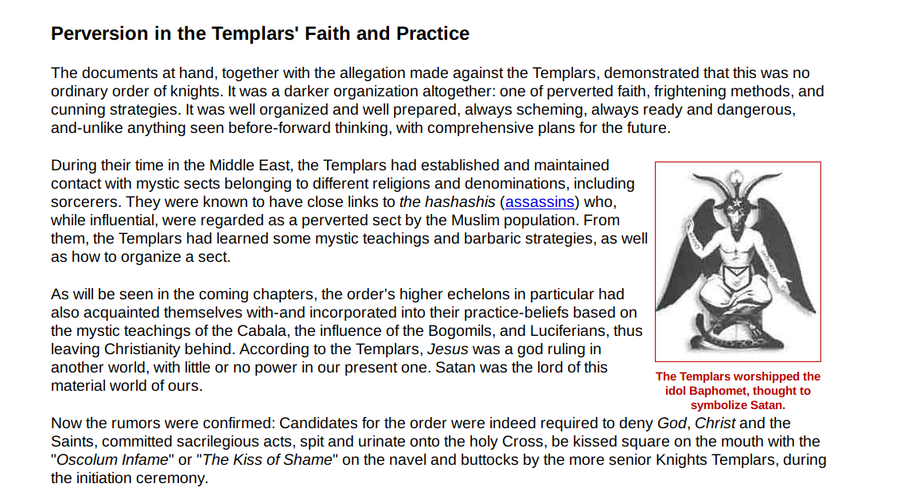
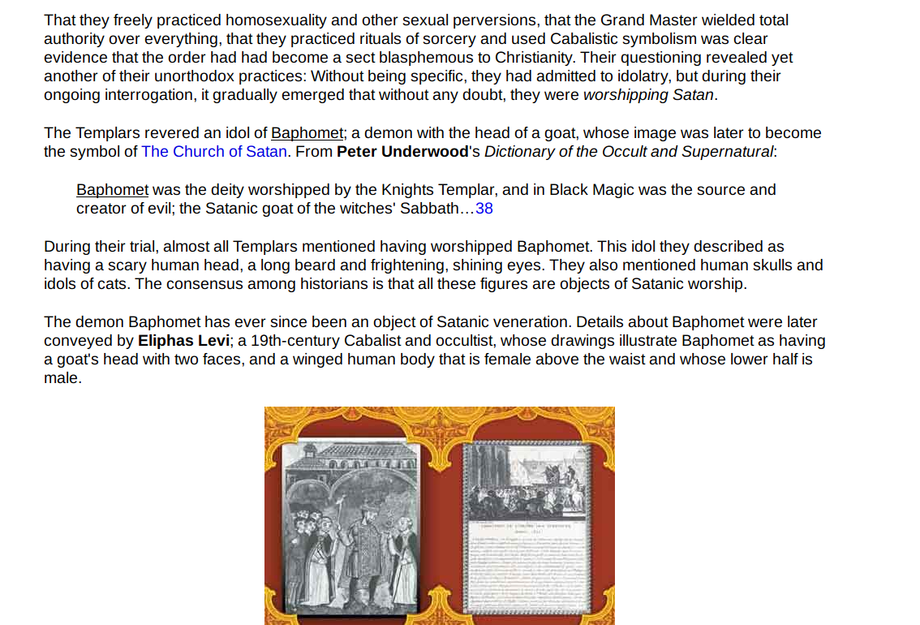
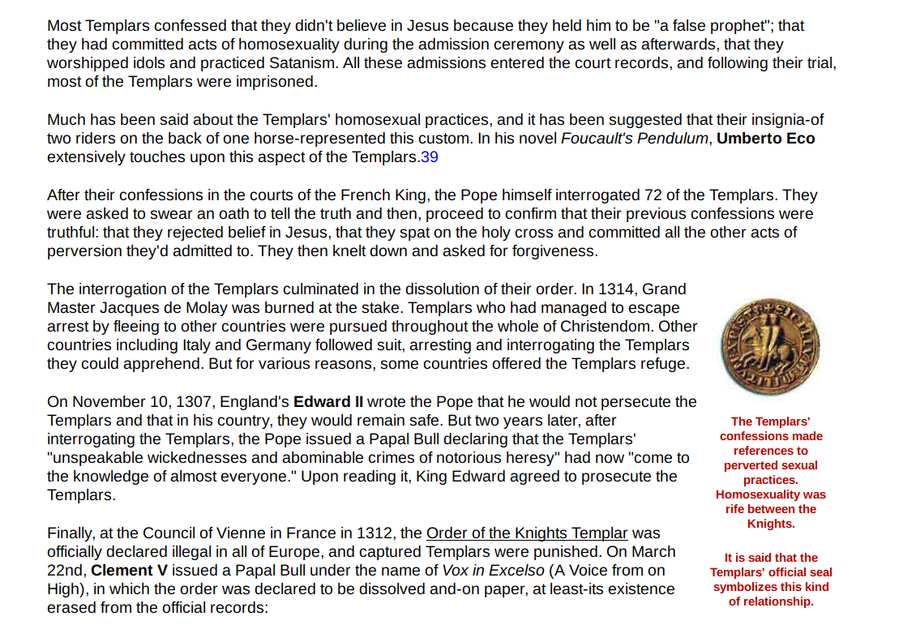
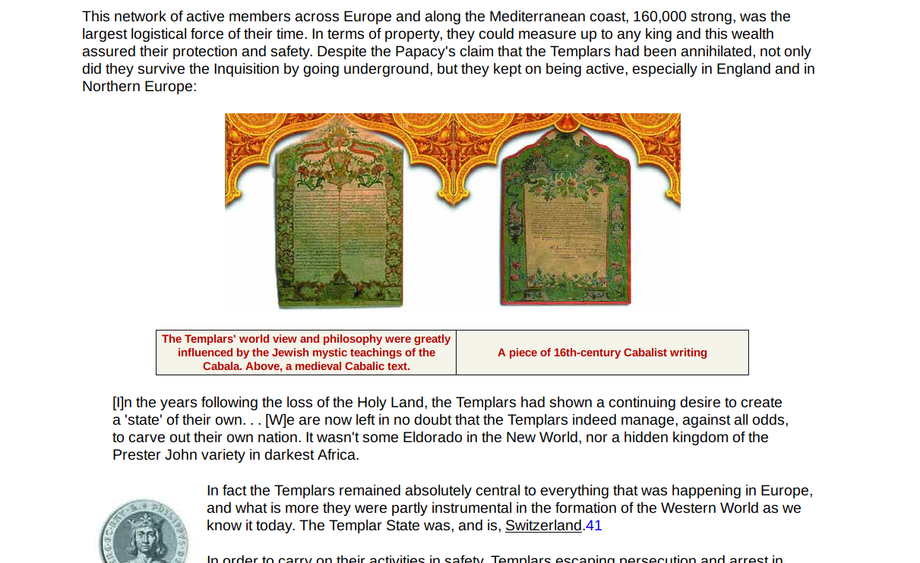



( SINCE 1291 -- THIS IS WHO ARE THE MASTER BEHIND THE LlGHT: "Illuminati The Freemasonry and Zionism - The Master Plan To Rule The World.")
-----------------------------------------------------------------------------------------------------------------------------------------------------
The Freemasons founded America (1776) just as the Templars had founded Switzerland; then the French lodge,
"Les Neufs Soeurs",
donated the statue of Isis masquerading as the statue of Liberty --
the liberty to do as they want and kill innocent people all over the world.
These Pharaohs and Pharisees rule the world now, from their most important base, Switzerland of the Templars.
During the 30-year War (1618-1648) against Protestants, and on behalf of the Roman Catholics, hundreds of thousands of Swiss mercenaries had massacred millions of Germans as a "late" answer to the defeat of Varus of the Roman Empire,thus installing their final reign in Germany. The Templars and the Swiss never seemed to forget anything -- except their own wrong-doings and crimes against humanity
In Egyptian language, only the consonants are written, so "Isis" without vowels becomes "SS", as in Schutz Staffel, Sar Security or Securitas Suisse. Also,as the skull is a Masonic symbol, the "SS-skull" is a suggestion that "Isis" is the symbol of total Templar Masonry with Pharaonic and Pharasaic roots.
During World War Two, Heinrich Himmler, head of the SS ("Isis"), searched for the Templars treasure in Rennes-le-Chateau, and searched in the ancient Cathar territories. What did he find? And why did they have another "Crusade"towards Egypt with the (North) Africa Corps? Strategically, it made no sense, no Germans to protect, only sand to conquer -- so what else were they looking for? Did the Templars buy and secure everything in Switzerland?
During World War Two, Heinrich Himmler, head of the SS ("Isis"), searched for the Templars treasure in Rennes-le-Chateau, and searched in the ancient Cathar territories. What did he find? And why did they have another "Crusade"towards Egypt with the (North) Africa Corps? Strategically, it made no sense, no Germans to protect, only sand to conquer -- so what else were they looking for? Did the Templars buy and secure everything in Switzerland?
Swiss Templar mercenaries hold to the tradition to keep the assault rifle at home.These mercenaries, who already terrorized Europe for hundreds of years,traditionally always could -- or rather should -- return to the mountains every year to do their harvest from 1st August onward, leaving their muskets in the locker,greased and ready for use in the next military campaign.
Nowadays, this is still their national holiday, on which plenty of fireworks are lit with the sound of detonations echoing through the valleys, similar to when they used to announce their home-coming by firing their guns, a successful campaign always being accompanied by the goods from looting and pillaging.
All would come rushing down from the fields to party and celebrate the murder of Europeans and their children -- still celebrating it to this day in full awareness of that which they honour.
Nowadays, this is still their national holiday, on which plenty of fireworks are lit with the sound of detonations echoing through the valleys, similar to when they used to announce their home-coming by firing their guns, a successful campaign always being accompanied by the goods from looting and pillaging.
All would come rushing down from the fields to party and celebrate the murder of Europeans and their children -- still celebrating it to this day in full awareness of that which they honour.
Not so long ago, in the French-speaking cantons of Vaud and Fribourg, the Bernese have slaughtered 60% of their own population. Think of the Swiss Popes guards in the Vatican as a relic of CaeSARs Roman Legion: and now the Templars delegate their Swiss banks, such as the UBS (United Banksters of Switzerland), to finance wars and suck the wealth out of other countries in a hidden, parasitic fashion; attracting others to relocate to Swiss territory, such as the head-office of large Companies with their secret subsidiaries and rich people who no longer pay taxes anymore in their own countries.
The burden of taxes are going to be on the backs of small business and the poor, making the rich even richer, and the poor even poorer; enabling Switzerland,as a criminal nation, to continue parasiting and living off others.
This Templars base, called Switzerland of the Pharaohs and Pharisees, is a cancer in the middle of Europe, that has to be cut out before it creates even more misery in the world.
The burden of taxes are going to be on the backs of small business and the poor, making the rich even richer, and the poor even poorer; enabling Switzerland,as a criminal nation, to continue parasiting and living off others.
This Templars base, called Switzerland of the Pharaohs and Pharisees, is a cancer in the middle of Europe, that has to be cut out before it creates even more misery in the world.
The Pharaoh-Pharisee of America: Uncle Sam
When anything is being named after a person, it is customary to use the family name and not the first name, for example: as in Amerigo Vespucci, we would call them Vespuccians and their lands would be the United States of Vespucci.
All this may be nothing more than camouflage to conceal the real thing, for example the US is sometimes known as "Uncle Sam".
Applying a little Pharaoh nic and Pharaohsic insider knowledge, Sam or Sem is the father or "uncle" of the Semites, and one of the sons of Noah. Equally, the name of Samuel is derived from Sam, considering the names etymology. Further on, Freemasons originate from Egypt, "Hiram" being just another Egyptian name as were the "Templars".
All this may be nothing more than camouflage to conceal the real thing, for example the US is sometimes known as "Uncle Sam".
Applying a little Pharaoh nic and Pharaohsic insider knowledge, Sam or Sem is the father or "uncle" of the Semites, and one of the sons of Noah. Equally, the name of Samuel is derived from Sam, considering the names etymology. Further on, Freemasons originate from Egypt, "Hiram" being just another Egyptian name as were the "Templars".
Every syllable in the name "America" has Pharaonic meaning, and not just any meaning but a very important one. "A" means "big" or "pregnant", and when a woman is pregnant, shes quite big. "Me", "mer" or "meru" is the word for"pyramid", as seen on the paper dollar. "Ri" is the word for the "sun", as the sun-god, "re" or "ra"; and the sun is the symbol for the re-incarnation, as it gives birth to a new day every 24 hours. "Ka" is the word for "soul" during earthly life; and after death, the Pharaohs talk of "Ba" (for example, "MER-KA-BA").
Reading from left to right, "A-ME-RI-KA" means: "The re-incarnation of the big pyramid will take place where our souls can live."
Reading from left to right, "A-ME-RI-KA" means: "The re-incarnation of the big pyramid will take place where our souls can live."
Well, there it is on the paper dollar -- the big Luciferian pyramid in a country ruled by the Pharaohs/Pharisees ,with the symbol of Pharaonic domination next to the White House: the obelisk of Osiris, and with its carved top, the phallic symbol of circumcision.
As "A-ME-RI-KA" was conquered, the Pharaohs were so euphoric for the new"Lebensraum", where their souls ("KA") might live, that they just named everything with a "KA": KA-lifornia, Alas-KA, KA-nada, North KA-rolina, South KA-rolina, KA-nsas, Jamai-KA, and so on. In the Old World, there already were: KA-sachstan andthe KA-SAR, KA-meroon, Madagas-KA, Ni-KA-ragua, KA-nary Isles, KA-melot, Ex-KA-libur, AF-RI-KA ("EF" meaning "meat" or "wildlife", "RI" meaning plenty of"sun"),
and so on.
As "A-ME-RI-KA" was conquered, the Pharaohs were so euphoric for the new"Lebensraum", where their souls ("KA") might live, that they just named everything with a "KA": KA-lifornia, Alas-KA, KA-nada, North KA-rolina, South KA-rolina, KA-nsas, Jamai-KA, and so on. In the Old World, there already were: KA-sachstan andthe KA-SAR, KA-meroon, Madagas-KA, Ni-KA-ragua, KA-nary Isles, KA-melot, Ex-KA-libur, AF-RI-KA ("EF" meaning "meat" or "wildlife", "RI" meaning plenty of"sun"),
and so on.
In every Hollywood film, the obelisk is shown, meaning: "We rule the world, we made this movie and we indoctrinate your children with the ideas which should be followed and inherited, we dont want you to think anything else
."In other words: "We want you to be an obedient, mind-controlled, TV robot."
In Jamestown, where the first settlers laid down their roots, a big obelisk reminds us exactly who founded America and who rules it through invisible ties:The Pharaohs!!
."In other words: "We want you to be an obedient, mind-controlled, TV robot."
In Jamestown, where the first settlers laid down their roots, a big obelisk reminds us exactly who founded America and who rules it through invisible ties:The Pharaohs!!
The Americans are neither a people nor a race. They are the Devils mixture driven by the Pharaohs (Pharisees). They are all circumcised after the Devils concept: they drop atom bombs, they financed Saddam Hussein and the worlds other dictators, they take the Arabs oil by force, they killed 3 million people in Vietnam and they killed children and pregnant women.
Hitler was financed by the Americans (Bush family and Henry Ford), Zionist bankers , UGLE and EIR (United Grand Lodge England and European Imperial Royal families, see "Bloodlines of the Illuminati"); money being delegated through Swiss banks.
It seems that Americans love to kill, though they sing about love in their hit parade. They have to kill and rob peoples all over the world in order to nourish their fat little offspring, to feed on pizzas, popcorn and hamburgers; those who symbolically carry the Devils mark as if a piece of their sexual organs have been cut off.
As many of these "babies" are so fat, they cant possibly squeeze into a small Japanese car, so they have to build over-sized, semi-military half-trucks for the "hummer babies", and to avoid wheel-spin because of the excessive weight, these half-trucks require 4-wheel drive. Now, these overweight trucks carrying their overweight "little monsters"
As many of these "babies" are so fat, they cant possibly squeeze into a small Japanese car, so they have to build over-sized, semi-military half-trucks for the "hummer babies", and to avoid wheel-spin because of the excessive weight, these half-trucks require 4-wheel drive. Now, these overweight trucks carrying their overweight "little monsters"
("monster" is the official legal term for a US citizen,Ballentines Law Dictionary, 1930),
these trucks do tend to consume a lot of petrol, they are "gas-guzzlers" so possibly the real reason for the Gulf War was to seize the mineral resources of the "skinnies", as they call the "sand-niggers" of the Arab world --
or possibly because the Arab world was about to dump the dollar and adopt the Euro. Wow, that would have been such an evil thing to do!
Out of America came the film "Sicko", about "socialized care" (or the lack of it) , a film made by Michael Moore who apparently knows what he is talking about
.
This fine American hypocrite is one who is trying to show us that "they are not all that bad after all", probably for strategical reasons.
Such ideas must come from a think-tank, whereas many tend to use language that comes from a military dictionary, it seems: "chink", "skinny", "sand-nigger" or just plain "nigger".
.
This fine American hypocrite is one who is trying to show us that "they are not all that bad after all", probably for strategical reasons.
Such ideas must come from a think-tank, whereas many tend to use language that comes from a military dictionary, it seems: "chink", "skinny", "sand-nigger" or just plain "nigger".
So there they are,
conspiring against the world (and its different peoples) in their "Atlantis" across the oceans, in cities like "Atlanta" (as if to emphasis the association), barricaded behind an atomic defence screen, bio-metrical passports and chip cards, behind the most horrifying army the world has ever witnessed,with a penitentiary accommodation for millions of people ready to be FEM A incarcerated, unlimited control of the state and policies, with their fingers in everyplace in every part of the world and a film industry which indoctrinates the hearts of every human being growing up on this globe, ready to copy that which was taught.
In other words: seeds for a behaviour that has been set out by evil. It is now apparent what A-ME-RI-KA is really about, despite all their propaganda methods over all these years of global suffering --
conspiring against the world (and its different peoples) in their "Atlantis" across the oceans, in cities like "Atlanta" (as if to emphasis the association), barricaded behind an atomic defence screen, bio-metrical passports and chip cards, behind the most horrifying army the world has ever witnessed,with a penitentiary accommodation for millions of people ready to be FEM A incarcerated, unlimited control of the state and policies, with their fingers in everyplace in every part of the world and a film industry which indoctrinates the hearts of every human being growing up on this globe, ready to copy that which was taught.
In other words: seeds for a behaviour that has been set out by evil. It is now apparent what A-ME-RI-KA is really about, despite all their propaganda methods over all these years of global suffering --
++++++++++++++++++++++++++++++++++++++++++++++++++++++++++
+++++++++++++++++++++++++++++++++++++++++++++++++++++++++++++++++++++
Coat of Arms of The City of London

Motto: Domine Dirige Nos ("O Lord direct us")
City of London has existed in different forms for well over 2000 years and predates Roman times , who building on the existing created a fortified walled City . It is older than the country of Great Britain and has never been conquered since the Romans , this is why it has been not been part of any kingdom .
It is not a soviregn state in the same way as Vatican City nor is it under the control any one family or Pope
the fact it is a corporation should really be enough to make that obvious
so I will leave that there as there is a lot of history on the way for the reader too digest in order that are able to understand and see the truth currently hidden from them in plain sight ,
if you require a more detailed explanation
these two 5 minute videos explain it all brilliantly
City of London Corporation 1647 CLICK TO VIEW
THE CROWN is the UK GOV
and has been so since The Bill of Rights was created
as you will learn
ANY WAY - BACK 2
CITY OF LONDON
December, 1647 Corporation created
That from henceforth there be, and shall be a Corporation within the said City of London and Liberties thereof. Consisting of a President, Deputy to the President, a Treasurer, and forty Assistants, whereof the Lord Maior of the City for the time being to be President, eight of the said Assistants to be of the Aldermen of the said City for the time being; and the other thirty and two to be Freemen of, and Inhabitants in the said City, chosen out of the severall Wards of the said City equally, and that John Warner, Sir George Clarke, John Foulke, William Gibbs, Samuel Avery, John Bide, George Witham, Thomas Viner, Aldermen of the said City, shall be the first eight Aldermen of the presentFULL TEXT AND MORE NAMES
http://www.british-history.ac.uk/no-series/acts-ordinances-interregnum/pp1042-1045
https://www.british-history.ac.uk/search?query=city%20of%20london%20corporation
https://www.cityoflondon.gov.uk/Pages/default.aspx
https://en.wikipedia.org/wiki/City_of_London_Corporation
+++++++++++++++++++++++++++++++++++++++++++++++++++++++++++++++++++++
Bank of England :
William Paterson FOUNDER Bank of England
Born in Tinwald, Dumfriesshire, SCOTLAND Paterson was brought up in England from an early age.
By 1686 he was established in London as a merchant and member of the Merchant Taylors' Company.
In 1691 he proposed the foundation of the Bank of England, becoming one of its first directors after its establishment in 1694.
https://t.co/pnOJfoHkrO
https://en.m.wikipedia.org/wiki/Bank_of_England
England's crushing defeat by France, the dominant naval power, in naval engagements culminating in the 1690 Battle of Beachy Head, became the catalyst for England rebuilding itself as a global power.
England had no choice but to build a powerful navy. No public funds were available, and the credit of William III's government was so low in London that it was impossible for it to borrow the £1,200,000 (at 8% p.a.) that the government wanted.
To induce subscription to the loan, the subscribers were to be incorporated by the name of the Governor and Company of the Bank of England.
The Bank was given exclusive possession of the government's balances, and was the only limited-liability corporation allowed to issue bank notes.The lenders would give the government cash (bullion) and issue notes against the government bonds, which can be lent again.
The £1.2m was raised in 12 days; half of this was used to rebuild the navy.
As a side effect, the huge industrial effort needed, including establishing ironworks to make more nails and advances in agriculture feeding the quadrupled strength of the navy, started to transform the economy.
This helped the new Kingdom of Great Britain –England and Scotland were formally united in 1707 -
Money Supply
The 1844 Bank Charter Act tied the issue of notes to the gold reserves and gave the Bank sole rights with regard to the issue of banknotes.
Private banks that had previously had that right retained it, provided that their headquarters were outside London and that they deposited security against the notes that they issued.
A few English banks continued to issue their own notes until the last of them was taken over in the 1930s. Scottish and Northern Irish private banks still have that right The bank acted as lender of last resort for the first time in the panic of 1866
The last private bank in England to issue its own notes was Thomas Fox's Fox, Fowler and Company bank in Wellington, which rapidly expanded, until it merged with Lloyds Bank in 1927.
They were legal tender until 1964. There are nine notes left in circulation; one is housed at Tone Dale House Wellington.
Britain remained on the gold standard until 1931, when the gold and foreign exchange reserves were transferred to the Treasury; however, they continued to be managed by the Bank.
During the governorship of Montagu Norman, from 1920 to 1944, the Bank made deliberate efforts to move away from commercial banking and become a central bank.
In 1946, shortly after the end of Norman's tenure, the bank was nationalised by the Labour government.
The Bank of England Act 1946 (c 27) is an Act of Parliament of the United Kingdom which came into force on 14 February 1946.
The Act brought all of the stock of the Bank of England into public ownership on the "appointed date" (1 March 1946).
------------------------------------------------------------------------------------------------------------------------------------------------
So to sum up
The Bank of England is the central bank of the United Kingdom
Established in 1694 to act as the English Government's banker, and still one of the bankers for the Government of the United Kingdom,
it is the world's eighth-oldest bank.It was privately owned by stockholders from its foundation in 1694 until it was nationalised in 1946.
Established in 1694 to act as the English Government's banker, and still one of the bankers for the Government of the United Kingdom,
it is the world's eighth-oldest bank.It was privately owned by stockholders from its foundation in 1694 until it was nationalised in 1946.
It has never been owned outright by anyone
++++++++++++++++++++++++++++++++++++++++++++++++++++++++++++++++++++++++++++++++
+++++++++++++++++++++++++++++++++++++++++++++++++++++++++++++++++++++++++++++++++Rothschild London
Rothschild Thursday 15 April 2004
After 261 years, N.M. Rothschild & Sons, the most prestigious bank in the City of London still owned by its founding family, shocked the financial world yesterday when it pulled out of trading in gold and other commodities.
The chairman, David de Rothschild, said: "Our income from commodities trading in London, including gold, has fallen as a percentage of our total income in each of the past five years. Following a strategic review of our activities we have concluded that this is no longer a core area of activity and have, therefore, decided to withdraw from the market.
As part of the decision,
Rothschild will no longer take part in the twice-daily London Gold Fixing, which it currently chairs and which has been held in its offices since 1919.
Rothschild's roots lie in gold. Its origins date back to 1743 when a German goldsmith, Amshall Moses Bower, opened a counting house in Frankfurt.
By the end of the 18th century Rothschild was lending to governments and helped to finance the Napoleonic wars in the early 19th century. Nathan Rothschild paid for an attack on France by the Duke of Wellington by smuggling gold through France.
Through its command of gold Rothschild effectively became paymaster to the British Army. After a run on gold, causing an economic crisis and the collapse of 145 banks Rothschild shipped £10m of gold and rescued the Bank of England acquiring the lease of the Royal Mint Refinery in 1852, refining bullion until the sale of the business in 1967.
In the late nineteenth century N M Rothschild and Sons specialized in the finance of mining companies, notably De Beers, through the Exploration Company of which the bank was a founder, and also acted as bankers to the governments of Brazil, Chile and Egypt.
By the end of the 19th century Rothschild had twice bailed out the US government when its gold reserves fell to what were regarded as dangerously low levels.
After the First World War, the victorious governments were anxious to stabilize the price of gold, and asked Rothschild to organise what became the London Gold Fixing.
Every day for 85 years, representatives of the five leading London gold dealers had met at Rothschild's offices in St Swithin's Lane to fix the price
https://www.geni.com/people/Moses-Rothschild/6000000008827931559
https://www.independent.co.uk/news/business/news/rothschild-the-bank-built-on-gold-quits-market-56047.html
+++++++++++++++++++++++++++++++++++++++++++++++++++++++++++++++++++++++++++++++++
So what
Well why go to such lengths to push NAZI Propaganda in 2019 ~>?
The Red Knights Shield is the arms of Switzerland
Home to the Nazi Templar Aristocratic Bloodlines
Top of the pyramid
Pharaoh
Pharaoh
this may sound wild
and right now
you may be thinking
and right now
you may be thinking
shill dis-info
Zionist dew-fag
I get it , I dismissed a lot at first too
Zionist dew-fag
I get it , I dismissed a lot at first too
however keep reading
I can prove it
how come i learned that the Rothschild rules the world stuff was bullshit ?
simple = I tried to prove it with sources
can you ?
I can prove it
how come i learned that the Rothschild rules the world stuff was bullshit ?
simple = I tried to prove it with sources
can you ?
--------------------------------------------------------------------------------------------------------------------------

The last stronghold of the Templars fell on May 18th, 1291, two months later Switzerland was founded
Knights templar were the first bankers
and still are ,
they are also Pharaoh bloodline hence the Egyptian symbology
but ill come back too that
THE HEAD OF THE SNAKE - bank for central banks
Bank for International Settlements (BIS) Basel, Switzerland serves as a bank for central banks
wholly owned by BIS members (central banks) which "fosters international monetary and financial cooperation and serves as a bank for central banks".
The BIS carries out its work through its meetings, programmes and through the Basel Process – hosting international groups pursuing global financial stability and facilitating their interaction. It also provides banking services, but only to central banks and other
international organizations. It is based in Basel, Switzerland, with representative offices in Hong Kong and Mexico City.
.




must watch
https://www.youtube.com/watch?v=a2xZQ5CvPMU

When we say rothschild own blah blah its provably false infact What your repeating is ::::
The Third Reich's First Anti-Semitic Manifesto in Film
i shit you not
Yeah , i felt sick too about here ........
Die Rothschilds Aktien auf Waterloo - The Rothschilds' Shares in Waterloo (1940)

The Rothschilds was the first of three stridently antisemitic movies made in 1940 under the Nazi regime. A purportedly "historical" account of the Rothschild family's rise to fortune, set mostly in Great Britain during the Napoleonic wars, the movie reflected a wildly ambitious racial-political agenda.
Beyond its indictment of "Jewish" intrigue and avarice, The Rothschilds aimed to show the "Judafication" of British society at Rothschild hands, and thus demonstrate why, in Joseph Goebbels' words, Britons had become "the Jews among Aryans."
Yet the film's dramatic conventions did not always mesh with its racial politics, and when the film was released in July 1940, German audiences were left unclear as to just who they were mainly supposed to hate.
Goebbels had it pulled from distribution; a year later, a much-revised version, purged of any conceivable sympathies for its British characters, was released.
The revamped movie was renamed The Rothschilds: Shares in Waterloo; But by the time of its re-release, the movie's moment had passed. Germany's air war with Britain was winding down to an inglorious end, while at home, a new, wildly popular film, Jud Süss, had become the regime's preferred vehicle for whipping up antisemitic feeling.
If, in the end, The Rothschilds proved a less effective incitement to hate, it wasn't for lack of trying. With its striking juxtaposition of Nazi social criticism and racial theory, its twin assaults upon Jewish and British character, and its deft recycling of many key myths surrounding the House of Rothschild, this film deserves far more notoriety than has been its due.
Directed by Erich Waschneck; Music by Johannes Müller; featuring Carl Kulmann, Hilde Weissner and Giesela Uhlen.
Die Rothschilds Aktien auf Waterloo - The Rothschilds' Shares in Waterloo english subbed (1940)
https://web.archive.org/watch?v=3ANX9C5kucY
DIE ROTHSCHILDS AKTIEN AUF WATERLOO (1940)
So now so what about the Vatican -
well anyone with a high school education in Europe can see already but for those who don't know we need to go back too the time crusades and the OLD WORLD ORDER 1300's
well anyone with a high school education in Europe can see already but for those who don't know we need to go back too the time crusades and the OLD WORLD ORDER 1300's


The Legal Ownership of All Souls by the Vatican…
Since 1306!
Unam Sanctam is one of the most frightening documents of history and the one most quoted as the primary document of the popes claiming their global power. It is an express trust deed.The last line reads: “Furthermore, we declare, we proclaim, we define that it is absolutely necessary for salvation that every human creature be subject to the Roman Pontiff.”
It is not only the first trust deed in history but also the largest trust ever conceived, as it claims the whole planet and everything on it, conveyed in trust.
""The spiritual man judgeth of all things and he himself is judged by no man" [1 Cor 2:15].
This authority, however, (though it has been given to man and is exercised by man), is not human but rather divine, granted to Peter by a divine word and reaffirmed to him (Peter) and his successors by the One Whom Peter confessed, the Lord saying to Peter himself, "Whatsoever you shall bind on earth, shall be bound also in Heaven" etc., [Mt 16:19].
Therefore whoever resists this power thus ordained by God, resists the ordinance of God [Rom 13:2], unless he invent like Manicheus two beginnings, which is false and judged by us heretical, since according to the testimony of Moses,it is not in the beginnings but in the beginning that God created heaven and earth [Gen 1:1].
Furthermore, we declare, we proclaim, we define that it is absolutely necessary for salvation that every human creature be subject to the Roman Pontiff.! "
https://www.ewtn.com/library/PAPALDOC/B7UNAM.HTM

HUNDRED YEARS' WAR.
his name is given to the protracted conflict between France and England from 1337 to 1453, which continued through the reigns of the French kings Philip VI, John II, Charles V, Charles VI, Charles VII, and of the English kings Edward III, Richard II, Henry IV, Henry V and Henry VI.
http://www.luminarium.org/encyclopedia/100years.htm
Reformation
Reformation, also called Protestant Reformation, the religious revolution that took place in the Western church in the 16th century. Its greatest leaders undoubtedly were Martin Luther and John Calvin. Having far-reaching political, economic, and social effects, the Reformation became the basis for the founding of Protestantism, one of the three major branches of Christianity.In Basel, Switzerland, Calvin brought out the first edition of his Institutes of the Christian Religion in 1536, the first systematic, theological treatise of the new reform movement. Calvin agreed with Luther’s teaching on justification by faith. However, he found a more positive place for law within the Christian community than did Luther.
In Geneva, Calvin was able to experiment with his ideal of a disciplined community of the elect. Calvin also stressed the doctrine of predestination and interpreted Holy Communion as a spiritual partaking of the body and blood of Christ. Calvin’s tradition merged eventually with Zwingli’s into the Reformed tradition, which was given theological expression by the (second) Helvetic Confession of 1561.
The Reformation spread to other European countries over the course of the 16th century. By mid century, Lutheranism dominated northern Europe. Eastern
In England the Reformation’s roots were both political and religious. Henry VIII, incensed by Pope Clement VII’s refusal to grant him an ann6ulment of his marriage, repudiated papal authority antions, the reorganization of the church permitted the beginning of religious change in England, which included the preparation of a liturgy in English, the Book of Common Prayer.
Scotland,
John Knox, who spent time in Geneva and was greatly influenced by John Calvin, led the establishment of Presbyterianism, which made possible the eventual union of Scotland with England.
https://www.britannica.com/event/ReformationThirty Years’ War
However, as the Thirty Years’ War evolved, it became less about religion and more about which group would ultimately govern Europe. In the end, the conflict changed the geopolitical face of Europe and the role of religion and nation-states in society.
Still, the Holy Roman Empire may have controlled much of Europe at the time, though it was essentially a collection of semi-autonomous states or fiefdoms. The emperor, from the House of Habsburg, had limited authority over their governance.
Legacy of the Thirty Years’ War
Ultimately, though, historians believe the Peace of Westphalia laid the groundwork for the formation of the modern nation-state, establishing fixed boundaries for the countries involved in the fighting and effectively decreeing that residents of a state were subject to the laws of that state and not to those of any other institution, secular or religious.This radically altered the balance of power in Europe and resulted in reduced influence over political affairs for the Catholic Church, as well as other religious groups.
As brutal as the fighting was in the Thirty Years’ War, hundreds of thousands died as a result of famine caused by the conflict as well as an epidemic of typhus, a disease that spread rapidly in areas particularly torn apart by the violence.
Historians also believe the first European witch hunts began during the war, as a suspicious populace attributed the suffering throughout Europe
https://www.history.com/topics/reformation/thirty-years-war
English Civil Wars (1642–51),
English Civil Wars, also called Great Rebellion, (1642–51), fighting that took place in the British Isles between supporters of the monarchy of Charles I (and his son and successor, Charles II) and opposing groups in each of Charles’s kingdoms, including Parliamentarians in England, Covenanters in Scotland, and Confederates in Ireland.The English Civil Wars are traditionally considered to have begun in England in August 1642, when Charles I raised an army against the wishes of Parliament, ostensibly to deal with a rebellion in Ireland. But the period of conflict actually began earlier in Scotland, with the Bishops’ Wars of 1639–40, and in Ireland, with the Ulster rebellion of 1641.
Throughout the 1640s, war between king and Parliament ravaged England, but it also struck all of the kingdoms held by the house of Stuart—and, in addition to war between the various British and Irish dominions, there was civil war within each of the Stuart states. For this reason the English Civil Wars might more properly be called the British Civil Wars or the Wars of the Three Kingdoms.
The wars finally ended in 1651 with the flight of Charles II to France and, with him, the hopes of the British monarchy.
The first English Civil War (1642–46)
It is doubtful whether Parliament could have won the first English Civil War without Scottish intervention. Royalist successes in England in the spring and early summer of 1643, combined with the prospect of aid from Ireland for the king, prompted the Scottish Covenanters to sign a political, military, and religious alliance the Solemn League and Covenant (September 25, 1643) with the English Parliamentarians.Desperate to protect their revolution at home, the Covenanters insisted upon the establishment of Presbyterianism in England and in return agreed to send an army of 21,000 men to serve there. These troops played a critical role at Marston Moor, with the covenanting general, David Leslie, briefly replacing a wounded Oliver Cromwell in the midst of the action.
For his part, Charles looked to Ireland for support. However, the Irish troops that finally arrived in Wales after a cease-fire was concluded with the confederates in September 1643 never equaled the Scottish presence, while the king’s willingness to secure aid from Catholic Ireland sullied his reputation in England.
Second and third English Civil Wars (1648–51)
Although the Scottish Covenanters had made a significant contribution to Parliament’s victory in the first English Civil War, during the second (1648) and third English Civil Wars (1650–51) they supported the king.On December 26, 1647, Charles signed an agreement known as the Engagement with a number of leading Covenanters.In return for the establishment of Presbyterianism in England for a period of three years,the Scots promised to join forces with the English Royalists and restore the king to his throne.
Early in July 1648, a Scottish force invaded England, but the parliamentary army routed it at the Battle of Preston (August 17).
The execution of Charles I in January 1649 merely served to galvanize Scottish (and Irish) support for the king’s son, Charles II, who was crowned king of the Scots at Scone, near Perth, on January 1, 1651. Ultimately, the defeat of a combined force of Irish Royalists and Confederates at the hands of English Parliamentarians after August 1649 prevented the Irishmen from serving alongside their Scottish and English allies in the third English Civil War.
As it was, this war was largely fought on Scottish soil,
Oliver Cromwell and his New Model Army having invaded Scotland in July 1650. Despite being routed at the Battle of Dunbar (September 3, 1650), which Cromwell regarded as “one of the most signal mercies God hath done for England and His people,” the Scots managed to raise another army that made a spectacular dash into England. This wild attempt to capture London came to nothing.
Cromwell’s resounding victory at Worcester (September 3, 1651) and Charles II’s subsequent flight to France not only gave Cromwell control over England but also effectively ended the wars of and the wars in the three kingdoms.
https://www.britannica.com/event/English-Civil-Wars
The Westminster Confession of Faith (1647)
https://reformed.org/documents/westminster_conf_of_faith.htmllChapter XXV.
Of the Church.
V. The purest Churches under heaven are subject both to mixture and error: and some have so degenerated, as to become no Churches of Christ, but synagogues of Satan. Nevertheless, there shall be always a Church on earth, to worship God according to His will.
VI. There is no other head of the Church, but the Lord Jesus Christ; nor can the Pope of Rome, in any sense, be head thereof; but is that Antichrist, that man of sin, and son of perdition, that exalteth himself, in the Church, against Christ and all that is called God.
Westminster confession of faith 1642 revoked the of authority of Catholic Church
and well read bit re antichrist
that was removed from US version .
Glorious Revolution
It involved the overthrow of the Catholic king James II, who was replaced by his Protestant Scots daughter Mary and her Dutch husband, William of Orange.
Motives for the revolution were complex and included both political and religious concerns.
The event ultimately changed how England was governed, giving Parliament more power over the monarchy and planting seeds for the beginnings of a political democracy.
King James II
James, who was Catholic, supported the freedom of worship for Catholics and appointed Catholic officers to the army. He also had close ties with France a relationship that concerned many of the English people.
In 1687, King James II issued a Declaration of Indulgence, which suspended penal laws against Catholics and granted acceptance of some Protestant dissenters. Later that year, the king formally dissolved his Parliament and attempted to create a new Parliament that would support him unconditionally.
James’s daughter Mary, a Protestant, was the rightful heir to the throne until 1688 when James had a son, James Francis Edward Stuart, whom he announced would be raised Catholic.
The birth of James’s son changed the line of succession, and many feared a Catholic dynasty in England was imminent. The Whigs, the main group that opposed Catholic succession, were especially outraged.
The king’s elevation of Catholicism, his close relationship with France, his conflict with Parliament and uncertainty over who would succeed James on the English throne led to whispers of a revolt and ultimately the fall of James II.
William of Orange
In 1688, seven of King James’s peers wrote to the Dutch leader, William of Orange, pledging their allegiance to the prince if he invaded England.William was already in the process of taking military action against England, and the letter served as an additional propaganda motive.
William of Orange assembled an impressive armada for the invasion and landed in Torbay, Devon, in November 1688.
King James, however, had prepared for military attacks and left London to bring his forces to meet the invading army. Several of James’s own men, including his family members, deserted him and defected to William’s side. In addition to this setback, James’s health was deteriorating.
James decided to retreat back to London on November 23. He soon announced that he was willing to agree to a “free” Parliament but was making plans to flee the country due to concerns for his own safety.
Bill of Rights
In January 1689, the now-famous Convention Parliament met. After significant pressure from William, Parliament agreed to a joint monarchy, with William as king and James’s daughter, Mary, as queen.
The two new rulers accepted more restrictions from Parliament than any previous monarchs, causing an unprecedented shift in the distribution of power throughout the realm
.
.
The king and queen both signed the Declaration of Rights, which became known as the Bill of Rights. This document acknowledged several constitutional principles, including the right for regular Parliaments, free elections and freedom of speech in Parliament. Additionally, it forbade the monarchy from being Catholic.
Many historians believe the Bill of Rights was the first step toward a constitutional monarchy.
After this event, the monarchy in England would never hold absolute power again.With the Bill of Rights, the regent’s power was defined, written down, and limited for the first time. Parliament’s function and influence changed dramatically in the years following the revolution.
The event also had an impact on the colonies in North America. The colonists were freed of strict, anti-Puritan laws after King James was overthrown.
When news of the revolution reached the Americans, several uprisings followed, including the Boston Revolt, Leisler’s Rebellion and the Protestant Revolution in Maryland
.Since the Glorious Revolution, Parliament’s power in Britain has continued to increase, while the monarchy’s influence has waned.
There’s no doubt this important event helped set the stage for the United Kingdom’s present-day political system and government.
https://www.history.com/topics/british-history/glorious-revolution
So now there is no Vatican power be it military or in law over Britain _there is a bloodlines / masonic connection but its not the way its being put out ......reason for that is Swiss German Nazi literally .
OSS CiAA CiA SS STazi Operation paperclip / Sunrise
*********************** THIS IS IMPORTANT AND WILL BE OF KEY IMPORTANCE IF YOU ARE TO UNDERSTAND OF THE PUZZLE HIDDEN IN PLAIN SIGHT AS AS WE CONTINUE FURTHER ON IN PART *******************************
Rothschild family have 1 title of ACTUAL nobility
Austrian Habsburg in House of Farnase , granted by the last Emperor of THE HOLY Roman Empire
https://en.wikipedia.org/wiki/House_of_Farnese
The Habsburgs did not formally abandon all hope of returning to power until Otto von Habsburg, the eldest son of Charles I, on 31 May 1961 renounced all claims to the throne.
The dynasty's motto was "Leave the waging of wars to others! But you, happy Austria, marry; for the realms which Mars awards to others, Venus transfers to you."
https://en.wikipedia.org/wiki/House_of_Habsburg
#

#'
In 1822, Carl Rothschild and his four brothers were each granted the title of baron, or Freiherr, by His Imperial Majesty Kaiser Franz I of Austria.
In 1829, Carl was appointed consul-general of Sicily at Frankfurt and in January 1832 the banker was given a ribbon and star of the Sacred Military Constantinian Order of Saint George at a ceremony with the new Roman Catholic Pope, Gregory XVI.
Majesty Kaiser Franz I of Austria
Francis II was the last Holy Roman Emperor, ruling from 1792 until 6 August 1806, when he dissolved the Holy Roman Empire after the decisive defeat at the hands of the First French Empire led by Napoleon at the Battle of Austerlitz.
In 1804, he had founded the Austrian Empire and became Francis I, the first Emperor of Austria, ruling from 1804 to 1835, so later he was named the Doppelkaiser (double emperor) in history.
For the two years between 1804 and 1806, Francis used the title and style by the Grace of God elected Roman Emperor, ever Augustus, hereditary Emperor of Austria and he was called the Emperor of both the Holy Roman Empire and Austria.
He was also Apostolic King of Hungary, Croatia and Bohemia as Francis

Carl Rothschild
The Sacred Military Constantinian Order of Saint George is a dynastic order of knighthood of the Catholic Church founded 1520–1545 by two brothers belonging to the Angeli Comneni family.
Currently, the grand magistry of the order is disputed among claimants to the headship of the former reigning House of Bourbon-Two Sicilies as heirs of the House of Farnese.
Although it is not an order of chivalry under patronage of the Holy See, membership is restricted to practising Catholics
The Grand Master of the Order is HRH the Infante Don Carlos, Duke of Calabria, first cousin to HM the King of Spain.
The Order is regulated as a subject of canon law, and the succession to the Grand Magistery is governed first by the statutes of 1705, approved by Papal Brief in 1706 and the Bull Militantis Ecclesiae of 1718, and then confirmed in the statutes of 1922 approved by Papal Placet (these statutes have again been modified in 1934, 1943, 1987 and 2004).
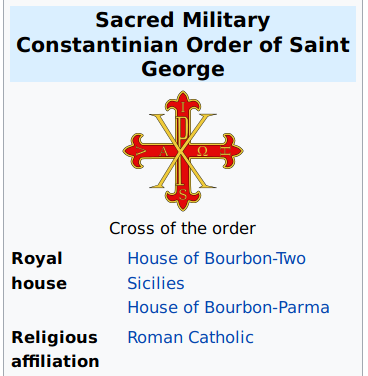

https://en.wikipedia.org/wiki/Sacred_Military_Constantinian_Order_of_Saint_George
https://romanchristendom.blogspot.com/2008/10/this-week-will-see-investitures-of-new.html
Currently, the grand magistry of the order is disputed among claimants to the headship of the former reigning House of Bourbon-Two Sicilies as heirs of the House of Farnese.
Although it is not an order of chivalry under patronage of the Holy See, membership is restricted to practising Catholics
The Grand Master of the Order is HRH the Infante Don Carlos, Duke of Calabria, first cousin to HM the King of Spain.
The Order is regulated as a subject of canon law, and the succession to the Grand Magistery is governed first by the statutes of 1705, approved by Papal Brief in 1706 and the Bull Militantis Ecclesiae of 1718, and then confirmed in the statutes of 1922 approved by Papal Placet (these statutes have again been modified in 1934, 1943, 1987 and 2004).


https://en.wikipedia.org/wiki/Sacred_Military_Constantinian_Order_of_Saint_George
https://romanchristendom.blogspot.com/2008/10/this-week-will-see-investitures-of-new.html
Ranks BELOW Knights Malta and not listed as one of the 7 orders recognized by the Vatican at time of writing 2019
Sovereign Military Order of Malta
The birth of the Order of St. John dates back to around 1048. Merchants from the ancient Marine Republic of Amalfi obtained from the Caliph of EgyptFrench occupation of Malta
Their Mediterranean stronghold of Malta was captured by the French First Republic under Napoleon in 1798 during his expedition to Egypt, following the French Revolution and the subsequent French Revolutionary Wars.
Napoleon demanded from Grand Master Ferdinand von Hompesch zu Bolheim that his ships be allowed to enter the port and to take on water and supplies. The Grand Master replied that only two foreign ships could be allowed to enter the port at a time. Bonaparte, aware that such a procedure would take a very long time and would leave his forces vulnerable to Admiral Nelson, immediately ordered a cannon fusillade against Malta.
[The French soldiers disembarked in Malta at seven points on the morning of 11 June and attacked. After several hours of fierce fighting, the Maltese in the west were forced to surrender.
Napoleon opened negotiations with the fortress capital of Valletta. Faced with vastly superior French forces and the loss of western Malta, the Grand Master negotiated a surrender to the invasion.Hompesch
The knights were dispersed, though the order continued to exist in a diminished form and negotiated with European governments for a return to power.
The Russian Emperor, Paul I, gave the largest number of knights shelter in Saint Petersburg, an action which gave rise to the Russian tradition of the Knights Hospitaller and the Order's recognition among the Russian Imperial Orders. The refugee knights in Saint Petersburg proceeded to elect Tsar Paul as their Grand Master a rival to Grand Master von Hompesch until the latter's abdication left Paul as the sole Grand Master.
Grand Master Paul I created, in addition to the Roman Catholic Grand Priory, a "Russian Grand Priory" of no fewer than 118 Commanderies, dwarfing the rest of the Order and open to all Christians.
Napoleon demanded from Grand Master Ferdinand von Hompesch zu Bolheim that his ships be allowed to enter the port and to take on water and supplies. The Grand Master replied that only two foreign ships could be allowed to enter the port at a time. Bonaparte, aware that such a procedure would take a very long time and would leave his forces vulnerable to Admiral Nelson, immediately ordered a cannon fusillade against Malta.
[The French soldiers disembarked in Malta at seven points on the morning of 11 June and attacked. After several hours of fierce fighting, the Maltese in the west were forced to surrender.
Napoleon opened negotiations with the fortress capital of Valletta. Faced with vastly superior French forces and the loss of western Malta, the Grand Master negotiated a surrender to the invasion.Hompesch
The knights were dispersed, though the order continued to exist in a diminished form and negotiated with European governments for a return to power.
The Russian Emperor, Paul I, gave the largest number of knights shelter in Saint Petersburg, an action which gave rise to the Russian tradition of the Knights Hospitaller and the Order's recognition among the Russian Imperial Orders. The refugee knights in Saint Petersburg proceeded to elect Tsar Paul as their Grand Master a rival to Grand Master von Hompesch until the latter's abdication left Paul as the sole Grand Master.
Grand Master Paul I created, in addition to the Roman Catholic Grand Priory, a "Russian Grand Priory" of no fewer than 118 Commanderies, dwarfing the rest of the Order and open to all Christians.
By the early 19th century, the order had been severely weakened by the loss of its priories throughout Europe. Only 10% of the order's income came from traditional sources in Europe, with the remaining 90% being generated by the Russian Grand Priory until 1810. This was partly reflected in the government of the Order being under Lieutenants, rather than Grand Masters, in the period 1805 to 1879, when Pope Leo XIII restored a Grand Master to the order. This signaled the renewal of the order's fortunes as a humanitarian and religious organization.
On 19 September 1806, the Swedish government offered the sovereignty of the island of Gotland to the Order. The offer was rejected since it would have meant the Order renouncing their claim to Malta.[
The Treaty of Amiens (1802) obliged the United Kingdom to evacuate Malta which was to be restored to a recreated Order of St. John, whose sovereignty was to be guaranteed by all of the major European powers, to be determined at the final peace.
However, this was not to be because objections to the treaty quickly grew in the UK.Bonaparte's rejection of a British offer involving a ten-year lease of Malta prompted the reactivation of the British blockade of the French coast; Britain declared war on France on 18 May.
The 1802 treaty was never implemented. The UK gave its official reasons for resuming hostilities as France's imperialist policies in the West Indies, Italy, and Switzerland
After having temporarily resided in Messina, Catania and Ferrara, in 1834 the Order settled definitively in Rome, where it owns, with extraterritorial status, the Magistral Palace and the Magistral Villa on the Aventine Hill.
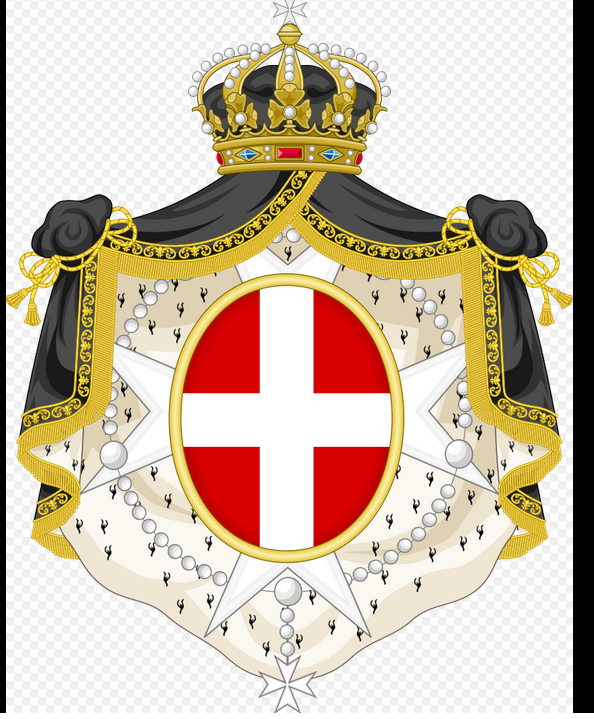
https://www.orderofmalta.int/history/1048-to-the-present/
https://en.wikipedia.org/wiki/Sovereign_Military_Order_of_Malta
There is a whole lot more too this story as we go through the last 100 years or so in History .
What i have done is show genuine information that Debunks the Nazi propaganda (Actual Nazi Germany )
in relation too ( Masonic Monarchy ) of Great Britain secretly being controlled by the pope or Rothschild
Pharaoh Swiss Nazi Templers




Red & white-= the two kingdoms of Egypt with blue being the colour of war
ref white blue = the UNITED KINGDOM's ( OF PHARAOH )
We find the red & white for kingdoms and blue united through war .
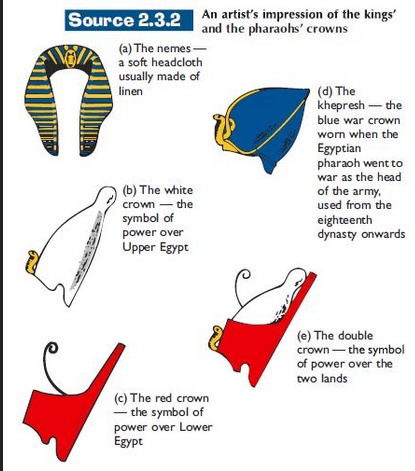
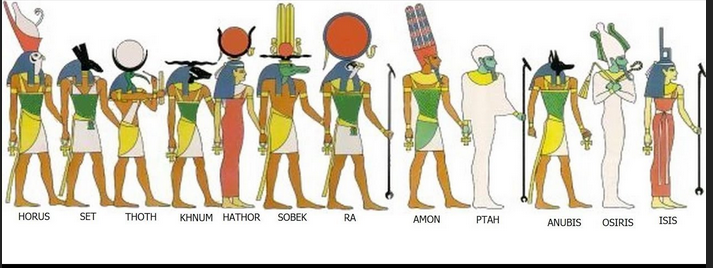
On 19 September 1806, the Swedish government offered the sovereignty of the island of Gotland to the Order. The offer was rejected since it would have meant the Order renouncing their claim to Malta.[
Exile
The French forces occupying Malta expelled the knights from their country.The Treaty of Amiens (1802) obliged the United Kingdom to evacuate Malta which was to be restored to a recreated Order of St. John, whose sovereignty was to be guaranteed by all of the major European powers, to be determined at the final peace.
However, this was not to be because objections to the treaty quickly grew in the UK.Bonaparte's rejection of a British offer involving a ten-year lease of Malta prompted the reactivation of the British blockade of the French coast; Britain declared war on France on 18 May.
The 1802 treaty was never implemented. The UK gave its official reasons for resuming hostilities as France's imperialist policies in the West Indies, Italy, and Switzerland
After having temporarily resided in Messina, Catania and Ferrara, in 1834 the Order settled definitively in Rome, where it owns, with extraterritorial status, the Magistral Palace and the Magistral Villa on the Aventine Hill.

https://www.orderofmalta.int/history/1048-to-the-present/
https://en.wikipedia.org/wiki/Sovereign_Military_Order_of_Malta
There is a whole lot more too this story as we go through the last 100 years or so in History .
What i have done is show genuine information that Debunks the Nazi propaganda (Actual Nazi Germany )
in relation too ( Masonic Monarchy ) of Great Britain secretly being controlled by the pope or Rothschild
Pharaoh Swiss Nazi Templers




Red & white-= the two kingdoms of Egypt with blue being the colour of war
ref white blue = the UNITED KINGDOM's ( OF PHARAOH )
We find the red & white for kingdoms and blue united through war .


Enki the creator god from worlds oldest records sumerian with the true cross
+++++++++++++++++++++++++++++++++++++++++++++++++++++++++++++++++++++++
Part 2
THE Elephant in the room IS REAL
Middle East apartheid White Supremist State
BY THE WAY do any of you " TROOFURS " do any actual research before
you repeat shit?
EG Balfour Declaration ,
so what about it ?
is it a title , deed , certificate of ownership ?
NO
So what is it proof of exactly ?
lol
send your answers on a postcard
lol
send your answers on a postcard
Confederatio Helvatica CH
Birth place of Evangelisim { And the Enlightenment Illuminate lum which in turn is the Roots of Modern ZIONISIM { Sion )
[One of Switzerlands Five Official Names ]
Now if you were paying attention - you will Remember I mentioned the THE REFORMATION earlier ???
If not you may find it helpful to have a quick scan over again so you see the connections : that is advised for all info I give actually
I provided all sources and important events to prove the Bullshit is bullshit , but im not going too spoon feed it to noobs , if you dont get it look it up ...
the dots are all here
I/m a researcher not an author
ok
buckle up
buckle up
Evangelicals ( fund-a-mental-ist Christian's ) , the Balfour Declaration and Zionism
When talking about the Balfour Declaration with a pastor from Bethlehem, he commented,’ the problems of the Palestinians didn’t start in 1917, they started in 1840′.
Literal reading of the Bible which had developed in the 17th Century took off in the 19th and restorationism gained political power through Lord Shaftesbury.
In Basel, Switzerland, Calvin brought out the first edition of his Institutes of the Christian Religion in 1536, the first systematic, theological treatise of the new reform movement.
Calvin agreed with Luther’s teaching on justification by faith. However, he found a more positive place for law within the Christian community than did Luther.
In Geneva, Calvin was able to experiment with his ideal of a disciplined community of the elect. Calvin also stressed the doctrine of predestination and interpreted Holy Communion as a spiritual partaking of the body and blood of Christ.
Calvin’s tradition merged eventually with Zwingli’s into the Reformed tradition, which was given theological expression by the (second) Helvetic Confession of 1561
Literal reading of the Bible which had developed in the 17th Century took off in the 19th and restorationism gained political power through Lord Shaftesbury.
His political influence came through Lord Palmerston. Shaftesbury’s wife was probably Palmerston’s daughter, he was certainly her stepfather.
Shaftesbury placed an advert in the Times in 1840 proposing a return of the Jews to Palestine, sent a memorandum round to the Protestant monarchs of Europe and moved to get a British Consul and Bishop installed in Jerusalem.
But Shaftesbury was not alone, he was just the politically best connected.Anthony Ashley Cooper, Earl of Shaftesbury was an Evangelical Christian, part of the revival of Evangelical faith that swept Britain in the early 19th century.
Religious motives prompted him to initiate charity works and further social legislation, including the ten hour day act. At the same time, he was keen for the restoration of the Jews, and their conversion to Christianity.
Lord Shaftesbury was the most active restoration lobbyist. 'The inherent vitality,' he wrote, 'of the Hebrew race reasserts itself with amazing persistence. Its genius, to tell the truth, adapts
itself more or less to all the currents of civilization all over the world, nevertheless always emerging with distinctive features and a gallant recovery of vigor."
Shaftesbury told his biographer, Edwin Hodder, that belief in the Second Advent, "has always been a moving principle in my life, for I see everything going on on in the world subordinate to this great even." Privately, he asked, "Why do we not pray for it every time we hear a clock string?" Hodder stated that since the return of the Jews was required for the Second Advent, Shaftesbury "never had a shadow of a doubt that the Jews were to return to their own land...It was his daily prayer, his daily hope. 'Oh pray for the peace of Jerusalem!' were the words engraven on the ring he always wore on his right hand.' (Tuchman, Bible and Sword p 178).
Lord Shaftesbury lobbied for the idea of return of the Jews with Prime Minister Palmerston and his successors in the government and was incidentally instrumental in the considerable assistance and protection against oppression that Britain henceforth extended to the Jews already living in Palestine.
In 1839 the Church of Scotland sent Andrew Bonar and Robert Murray M'Cheyne, to report on "the Condition of the Jews in their land." Their report was widely publicized in Great Britain and it was followed by a "Memorandum to Protestant Monarchs of Europe for the restoration of the Jews to Palestine." This memorandum was printed verbatim in the London Times, including an advertisement by Lord Shaftesbury igniting an enthusiastic campaign by the Times for restoration of the Jews.
In August 1840 the Times reported that the British government was considering Jewish restoration. It added that "a nobleman of the Opposition" (apparently Lord Shaftesbury) was making inquiries to determine:
- 1. Jewish opinion of the proposed restoration.
- 2. Jewish readiness to live in Palestine and invest their capital in agriculture.
- 3. How soon they would be ready to go.
- 4. Whether they would pay for their own passage, given assurance of safety to life and property.
- 5. Whether they would be willing to live under the Turkish rule, protected by Britain, France, Russia, Prussia, Austro- Hungary.
Shaftesbury had indeed caused Palmerston, either prior to or following the Times reprot, to write to the British Ambassador in Constantinople:
There exists at the present time among the Jews dispersed over Europe, a strong notion that the time is approaching for their nation to return to Palestine...It would be of manifest importance to the Sultan to encourage the Jews to return and to settle in Palestine because the wealth which they would bring with them would increase the resources of the Sultan's dominions; and the Jewish people, if returning under the sanction and protection and at the invitation of the Sultan, would be a check on any future evil designs of Mehmet Ali or his successors... I have to instruct Your Excellency strongly to recommend to hold out every just encouragement to the Jews of Europe to return to Palestine. (Tuchman, Bible and Sword, 1988 p 175).
Religious motives had been transformed into motives of state, a theme that was to be repeated in coming years.
Lord Ashley, Earl of Shaftesbury

Anthony Ashley Cooper, the eldest son of the 6th Earl of Shaftesbury (1768–1851) and Lady Anne Spencer-Churchill (1773–1865), was born on 28th April, 1801. At the age of seven he was sent to boarding school and five years later he was transferred to Harrow (1813-16)At the age of ten, Anthony was given the courtesy title of Lord Ashley.
Harrow School (1813-16) was followed by Christ Church College, where he gained a first-class degree in classics. At the age of twenty-five he was elected as M.P. for Woodstock, a pocket borough under the control of his uncle, the Duke of Marlborough.
"Ashley's growing sense of himself as a lone crusader was undergirded in the course of the 1830s by a deepening of his religious commitment. He had always been a sincere and pious Christian, but his beliefs now assumed an unambiguously evangelical character, sustained in particular by his friendship from 1835 with the leading divine Edward Bickersteth. Ashley became convinced of the imminence of the premillennial second advent of Christ,
I think a man's religion, if it is worth anything, should enter into every sphere of life, and rule his conduct in every relation. I have always been - and, please God, always shall be, an Evangelical."
Anthony Ashley Cooper, 7th Earl of Shaftesbury, died on 1st October, 1885.
It was a Scottish clergyman, Rev Alexander Keith, who was probably the first in 1843 to coin the phrase ‘A land without a people, for a people without a land.’
Shaftesbury was also one of the founders of the Palestine Exploration Fund which is some people’s minds was to find the archaeological support for the stories in the Bible. At their first meeting in 1865 the Chairman, the Archbishop of York included in his speech.
‘This country of Palestine belongs to you and to me, it is essentially ours. It was given to the Father of Israel in the words: ‘ Walk through the land in the length of it, and in the breadth of it, for I will give it unto thee.’ We mean to walk through Palestine in the length and in the breadth of it, because that land has been given unto us….’
This gives a flavour of thinking at that time
But evangelicals also appear to have played a significant role in the development of Jewish thinking.
Anita Shapira the respected Zionist historian writes:
‘… until the nineteenth century the Bible was considered secondary to Jewish oral law… It was the Protestants who discovered the Bible …Even the idea of the Jews returning to their ancient homeland as the first step to world redemption seems to have originated among a specific group of evangelical English Protestants that flourished in England in the 1840s; they passed this notion onto Jewish circles.
It might seem that the idea of returning to the Land of Israel had been part of the Jewish people’s spiritual beliefs from time immemorial…. But there was an essential difference between this yearning and Zionism. … Instead of passively awaiting the coming of the Messiah, the Jewish people would take their fate into their own hands and transform their situation through their own action”.
Theodor Herzl, who could be looked on as a founder of political Zionism, grew up in the environment of anti-Jewish pogroms post 1881 following the assassination of Tsar Alexander II. As a journalist he covered the Dreyfus affair in Paris where Dreyfus a Jewish captain in the French army was wrongly convicted of spying for Germany. Herzl returned to Vienna and wrote Der Judenstaat. [The Jewish State]. He tried to meet the Kaiser but failed.
William Hechler the restorationist chaplain of the English embassy in Vienna saw Herzl’s book in a bookshop and introduced himself to the author and offered to help him. Hechler had been the tutor to Prince Ludwig, the son and heir of Frederick I, the Grand Duke of Baden and had developed very close links with the family
He had written a book on the restoration of the Jews to Palestine[3] in 1882. He offered to introduce Herzl to the German political leadership such as the Grand Duke of Baden and the Kaiser. But he also introduced him to the European leadership as well.
Lewis writes: ‘In a remarkably short time, Herzl moved from being an obscure Jewish writer to the international stage’
Naim Ateek the founder of Sabeel in a sermon in Bethlehem recently said
‘In fact western Christian Zionists must share the responsibility for the creation of Zionism and in the establishment of the state of Israel. One of the closest friends of Theodor Herzl, the founder of political Zionism, was an Anglican priest by the name of William Hechler. Rev. Hechler was instrumental in inspiring and educating Herzl on those passages of the Bible that, he believed, call for the return of Jews to Palestine in fulfillment of prophecy’.
Hechler was critical to the development of Zionism.
I wonder whether the contacts, facilitated by Hechler, may have enabled Herzl to get Lloyd George’s law firm to act for him in 1903 on the Uganda scheme, where Britain raised the possibility of a Jewish homeland in Uganda.
Also one wonders how Weizmann could obtain introductions to the British political leadership, such as meeting Churchill in 1905 and Balfour in 1906 when he only arrived in the country in 1904. Particularly as Shapira comments that Zionism at this time represented ‘a negligible percentage of World Jewry
It is commonly claimed that the Balfour Declaration was issued because of war time needs, such as getting America into the war, although America joined the war 6 months before the Declaration.
Keeping Russia in the war against Germany was another.
( this aim evaporated almost immediately when Lenin took over in Russia 5 days after the declaration was signed and made a peace treaty with Germany.).
Once the war had been won some of the claimed reasons were of little relevance. However, there was another component of the reasons for the declaration which did not get included in official documents. This was the beliefs of the people making the decisions. Geoffrey Alderman wrote in the Jewish Chronicle
“The Balfour Declaration was born out of religious sentiment. Arthur Balfour was a Christian mystic who believed that the Almighty had chosen him to be an instrument of the Divine Will… perhaps as a precursor to the Second Coming of the Messiah”. Tom Segev wrote: ‘The Declaration was the product of neither military nor diplomatic interests but of prejudice, faith and sleight of hand. The men who sired it were Christian and Zionist and, in many cases, anti-Semitic.’
Rabbi Danny Rich
‘I am not arguing for Zionism as a Christian idea, but it is a very interesting point to make. Many of the non Jews who supported Zionism did so out of their Christian understanding of what was happening. ‘
But is this a correct assessment of the thinking of Balfour, Lloyd George and the political elite at the time?
Balfour was brought up in an evangelical environment. Balfour’s mother, Lady Blanche was from one of the wealthiest families in Britain being the sister of Lord Salisbury who served three times as Prime Minister.
She was an earnest evangelical, giving her son daily Bible study but also distributing Gospel tracts at the East Linton railway station near the Balfour Estate just outside Edinburgh
Lloyd George,
though from a totally different social class from Balfour, was brought up in a Welsh Baptist evangelical environment.
Speaking to the Jewish Historical Society in 1925 he said:
I was brought up in a school where I was taught far more history of the Jews than about my own land. I could tell you all the kings of Israel. But I doubt if I could have named half a dozen of the Kings of England, and not more of the Kings of Wales…
We were thoroughly imbued with the history of your race in the days of its greatest glory.
Active negotiations with the Zionists started once Lloyd George became Prime Minister
(note he had acted for the Zionists in 1903).
The Zionists drafted what became the Balfour Declaration and there were several drafts submitted to the cabinet.
It was not until the Autumn of 1917 that the second and third clauses protecting the rights of the existing population and Jews in other countries were added.
It was finally agreed on the 31st October 1917 and signed on Nov 2nd.
Curzon and Montagu, the only two English in the cabinet and Montagu the only Jew, were both against it.
The majority of the cabinet were from the Celtic fringe and had been raised in evangelical homes. There were three Scottish members of whom Balfour was one.
Calvinist forms of evangelical Protestantism dominated the family backgrounds of the majority of the cabinet members.
It is very difficult to quantify the relative importance of Christian evangelical beliefs in the attitudes to the Zionist pressures. But it is certainly true that the majority of the political elite believed the Bible literally.
As I mentioned earlier Lloyd George’s law firm acted for Herzl in 1903. Weizmann then arrived in Britain in 1904. He was, as well as a chemist, a highly effective propagandist and he made it his business to make contacts with the British leadership.
Thus when Lloyd George took over as Prime Minister and was favourable to a Jewish home in Palestine Weizman already knew the main players and was able to use the pressures of the war to press the Zionist case, even though Zionists were, negligibly minority of World Jewry at the time.
Edwin Montague, the only Jew in the cabinet, the Chief Rabbi at the time and many of the assimilated Jews in Britain were very much against the Zionist ideas.
See Robert Cohen
Britain continued its support for the Zionist project after the Declaration.
In 1915 we had promised Sharif Hussein support for an Arab state including Palestine if he helped us against the Ottomans. He kept his side of the bargain, we reneged on ours. The promise was effectively swept under the carpet.
The Anglo French Declaration in 1918 promised the countries released from Turkish rule would be able to choose their own governments.
All but Palestine were allowed to do so.
In 1919 at the request of President Wilson the King Crane Commission was set up to find out what the inhabitants of the Middle East wanted. It was clear they did not want the Zionist project. Publication of this report was delayed until after the Mandate had been agreed and like McMahon’s promise to Hussein, swept under the carpet
In 1919 Balfour commented that
‘Palestine presented a unique situation. We are dealing not with the wishes of an existing community but are consciously seeking to re-constitute a new community and definitely building for a numerical majority in the future’
Ernest Richmond found in 1923 that the Chief Secretary, his immediate superior, Wyndam Deedes, was a committed believer in Zionism as the fulfilment of Old Testament prophecies.
As was Major Ord Wingate who trained Jewish men in guerrilla techniques against the Arabs, in the Special Night Squads
Christian Zionism was not just important at the time of the writing of the Balfour Declaration.
They are a major political component in the US support of Israel today,
https://archive.org/details/landisraelaccor00keitgoog/page/n10
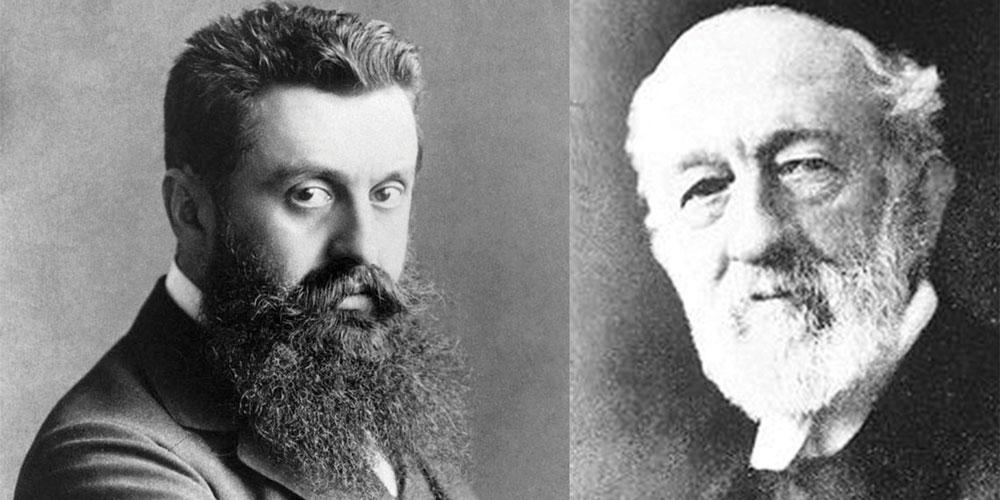
By Shira Sorko-Ram
There is not an Israeli school child anywhere in the world who has not heard of Theodore Herzl—the Father of Modern Israel. But few people in or out of Israel have ever heard of William Hechler.
Yet many historians concede if it weren’t for Pastor Hechler, Herzl would probably never have been anything more than an obscure, eccentric, minor Austrian newspaper columnist.
This is a story about Theodore Herzl, William Hechler … and yes, divine intervention.
Hechler’s father, an Anglican priest, had a deep admiration and respect for the Jewish people. This love for God’s chosen people profoundly influenced his son. In fact, it consumed him.
Since the Protestant Reformation starting in the early sixteenth century there had been pockets of Christian lovers of Zion throughout Europe and the United States.
This was in spite of the fact the Reformation’s pioneer, Martin Luther, hated the Jewish people.
EARLY CHRISTIAN ZIONISTS
The second U.S. president, John Adams, of Puritan background, wrote with clarity and understanding in 1819,
“I sincerely wish to see the Jews settled in Judah, forming an independent nation.”
Protestant Biblical Zionism spread widely across the European continent, as seen in the letter British Lord Shaftesbury sent to Queen Victoria, pleading, “
May it be during your reign that, according to the hopes of this unique people now laid before Your Majesty, ‘Judah shall be saved and Israel shall dwell in peace.’ Such is the prayer of the loyal and devoted servant of your Majesty.”
However, promoting the practical return of the Jews to their ancient homeland was for those few brave Christians who dug deeply and regularly into the Word of God. Rev. William Hechler was one of those.
For fifty years, Hechler traversed his world. As an Anglican cleric with both English and German as his mother tongue, he worked in Nigeria, served in the German army, raised a family in Cork, Ireland and became proficient in ten languages. Then in 1873, as often happens, strategic changes took place in his life, though only many years later would he understand their importance.
The Land of Israel: According to the Covenant with Abraham, with Isaac, and with Jacob by Alexander Keith 1844
https://archive.org/details/landisraelaccor00keitgoog/page/n15A Jew and a Christian: How They Changed History
https://sidroth.org/articles/jew-christian-changed-history/
Left: Theodore Herzl, of whom Israel’s Declaration of Independence officially refers to as the spiritual father of the Jewish State.
Right: William Hechler, friend, mentor and legitimizer of Herzl’s vision and calling. He is considered the father of Christian Zionism.
There is not an Israeli school child anywhere in the world who has not heard of Theodore Herzl—the Father of Modern Israel. But few people in or out of Israel have ever heard of William Hechler.
Yet many historians concede if it weren’t for Pastor Hechler, Herzl would probably never have been anything more than an obscure, eccentric, minor Austrian newspaper columnist.
This is a story about Theodore Herzl, William Hechler … and yes, divine intervention.
Hechler’s father, an Anglican priest, had a deep admiration and respect for the Jewish people. This love for God’s chosen people profoundly influenced his son. In fact, it consumed him.
Since the Protestant Reformation starting in the early sixteenth century there had been pockets of Christian lovers of Zion throughout Europe and the United States.
This was in spite of the fact the Reformation’s pioneer, Martin Luther, hated the Jewish people.
EARLY CHRISTIAN ZIONISTS
The second U.S. president, John Adams, of Puritan background, wrote with clarity and understanding in 1819,
“I sincerely wish to see the Jews settled in Judah, forming an independent nation.”
Protestant Biblical Zionism spread widely across the European continent, as seen in the letter British Lord Shaftesbury sent to Queen Victoria, pleading, “
May it be during your reign that, according to the hopes of this unique people now laid before Your Majesty, ‘Judah shall be saved and Israel shall dwell in peace.’ Such is the prayer of the loyal and devoted servant of your Majesty.”
However, promoting the practical return of the Jews to their ancient homeland was for those few brave Christians who dug deeply and regularly into the Word of God. Rev. William Hechler was one of those.
For fifty years, Hechler traversed his world. As an Anglican cleric with both English and German as his mother tongue, he worked in Nigeria, served in the German army, raised a family in Cork, Ireland and became proficient in ten languages. Then in 1873, as often happens, strategic changes took place in his life, though only many years later would he understand their importance.
Anthony Ashley Cooper, Earl of Shaftesbury was an Evangelical Christian, part of the revival of Evangelical faith that swept Britain in the early 19th century. Religious motives prompted him to initiate charity works and further social legislation, including the ten hour day act. At the same time, he was keen for the restoration of the Jews, and their conversion to Christianity.
Lord Shaftesbury was the most active restoration lobbyist. 'The inherent vitality,' he wrote, 'of the Hebrew race reasserts itself with amazing persistence. Its genius, to tell the truth, adapts itself more or less to all the currents of civilization all over the world, nevertheless always emerging with distinctive features and a gallant recovery of vigor."
Shaftesbury told his biographer, Edwin Hodder, that belief in the Second Advent, "has always been a moving principle in my life, for I see everything going on on in the world subordinate to this great even." Privately, he asked, "Why do we not pray for it every time we hear a clock string?" Hodder stated that since the return of the Jews was required for the Second Advent, Shaftesbury "never had a shadow of a doubt that the Jews were to return to their own land...It was his daily prayer, his daily hope. 'Oh pray for the peace of Jerusalem!' were the words engraven on the ring he always wore on his right hand.' (Tuchman, Bible and Sword p 178).
Lord Shaftesbury lobbied for the idea of return of the Jews with Prime Minister Palmerston and his successors in the government and was incidentally instrumental in the considerable assistance and protection against oppression that Britain henceforth extended to the Jews already living in Palestine.
In 1839 the Church of Scotland sent Andrew Bonar and Robert Murray M'Cheyne, to report on "the Condition of the Jews in their land." Their report was widely publicized in Great Britain and it was followed by a "Memorandum to Protestant Monarchs of Europe for the restoration of the Jews to Palestine." This memorandum was printed verbatim in the London Times, including an advertisement by Lord Shaftesbury igniting an enthusiastic campaign by the Times for restoration of the Jews.
In August 1840 the Times reported that the British government was considering Jewish restoration. It added that "a nobleman of the Opposition" (apparently Lord Shaftesbury) was making inquiries to determine:
1. Jewish opinion of the proposed restoration.
2. Jewish readiness to live in Palestine and invest their capital in agriculture.
3. How soon they would be ready to go.
4. Whether they would pay for their own passage, given assurance of safety to life and property.
5. Whether they would be willing to live under the Turkish rule, protected by Britain, France, Russia, Prussia, Austro- Hungary.
Shaftesbury had indeed caused Palmerston, either prior to or following the Times reprot, to write to the British Ambassador in Constantinople:
There exists at the present time among the Jews dispersed over Europe, a strong notion that the time is approaching for their nation to return to Palestine...It would be of manifest importance to the Sultan to encourage the Jews to return and to settle in Palestine because the wealth which they would bring with them would increase the resources of the Sultan's dominions; and the Jewish people, if returning under the sanction and protection and at the invitation of the Sultan, would be a check on any future evil designs of Mehmet Ali or his successors... I have to instruct Your Excellency strongly to recommend to hold out every just encouragement to the Jews of Europe to return to Palestine. (Tuchman, Bible and Sword, 1988 p 175).
Religious motives had been transformed into motives of state, a theme that was to be repeated in coming years.
Lord Ashley, Earl of Shaftesbury

Anthony Ashley Cooper, the eldest son of the 6th Earl of Shaftesbury (1768–1851) and Lady Anne Spencer-Churchill (1773–1865), was born on 28th April, 1801. At the age of seven he was sent to boarding school and five years later he was transferred to Harrow (1813-16)At the age of ten, Anthony was given the courtesy title of Lord Ashley.
Harrow School (1813-16) was followed by Christ Church College, where he gained a first-class degree in classics. At the age of twenty-five he was elected as M.P. for Woodstock, a pocket borough under the control of his uncle, the Duke of Marlborough.
"Ashley's growing sense of himself as a lone crusader was undergirded in the course of the 1830s by a deepening of his religious commitment. He had always been a sincere and pious Christian, but his beliefs now assumed an unambiguously evangelical character, sustained in particular by his friendship from 1835 with the leading divine Edward Bickersteth. Ashley became convinced of the imminence of the premillennial second advent of Christ,
I think a man's religion, if it is worth anything, should enter into every sphere of life, and rule his conduct in every relation. I have always been - and, please God, always shall be, an Evangelical."
Anthony Ashley Cooper, 7th Earl of Shaftesbury, died on 1st October, 1885.
++==================================================================================================
BALFOUR ISREAL
HOW IT WENT DOWN
British Imperial Connexions to the Arab National Movement, 1912-1914; Lord Kitchener, the Emir Abdullah, Sir Louis Mallet - the Case of Aziz Ali, 1914From: Volume X, Part II: The Last Years of Peace
(British Documents on the Origins of the War, 1898-1914, GP Gooch and Harold Temperley, eds. with the assistance of Lillian M. Penson, PhD, 1938),
pps 824-838.
(British Documents on the Origins of the War, 1898-1914, GP Gooch and Harold Temperley, eds. with the assistance of Lillian M. Penson, PhD, 1938),
pps 824-838.
WWI Document Archive > Official Papers https://web.archive.org/web/20190725103114/https://wwi.lib.byu.edu/index.php/British_Imperial_Connexions_to_the_Arab_National_Movement
Appendix III
I.
Preliminaries. Lord John Russell's refusal to favour independence of the Caliph (1860).
First stirrings of Arab Secret Societies (1865-1880).
II.Arab Secret Societies. From the Young Turk Revolution to 1912.
French Comments.
Syrian delegation to Lord Kitchener, 1912.
III.Arab Syrian Congress in Paris and Franco-Syrian Committee in Paris, June, 1913.
IV.Lord Kitchener's conversation with Emir Abdullah, February 1914, and its aftermath.
(A) Lord Kitchener's account and views of Sir Louis Mallet.
(B) Emir Abdullah s account of his conversation with Lord Kitchener, transmitted with notes by Mr. G. Antonius.
V.Aziz Bey and the Arab Movement, 1914.
I.The origins of the Arab National Movement.
((( please see link below for full details in 300 + dispatches )))
Appendix III
I.
Preliminaries. Lord John Russell's refusal to favour independence of the Caliph (1860).
First stirrings of Arab Secret Societies (1865-1880).
II.Arab Secret Societies. From the Young Turk Revolution to 1912.
French Comments.
Syrian delegation to Lord Kitchener, 1912.
III.Arab Syrian Congress in Paris and Franco-Syrian Committee in Paris, June, 1913.
IV.Lord Kitchener's conversation with Emir Abdullah, February 1914, and its aftermath.
(A) Lord Kitchener's account and views of Sir Louis Mallet.
(B) Emir Abdullah s account of his conversation with Lord Kitchener, transmitted with notes by Mr. G. Antonius.
V.Aziz Bey and the Arab Movement, 1914.
I.The origins of the Arab National Movement.
((( please see link below for full details in 300 + dispatches )))
Sykes-Picot Agreement
1. Sir Edward Grey to Paul Cambon, 15 May 1916
I shall have the honour to reply fully in a further note to your Excellency's note of the 9th instant, relative to the creation of an Arab State, but I should meanwhile be grateful if your Excellency could assure me that in those regions which, under the conditions recorded in that communication, become entirely French, or in which French interests are recognised as predominant, any existing British concessions, rights of navigation or development, and the rights and privileges of any British religious, scholastic, or medical institutions will be maintained.
His Majesty's Government are, of course, ready to give a reciprocal
assurance in regard to the British area.
2. Sir Edward Grey to Paul Cambon, 16 May 1916
I have the honour to acknowledge the receipt of your Excellency's note of the 9th instant, stating that the French Government accept the limits of a future Arab State, or Confederation of States, and of those parts of Syria where French interests predominate, together with certain conditions attached thereto, such as they result from recent discussions in London and Petrograd on the subject.
I have the honour to inform your Excellency in reply that the acceptance of the whole project, as it now stands, will involve the abdication of considerable British interests, but, since His Majesty's Government recognise the advantage to the general cause of the Allies entailed in producing a more favourable internal political situation in Turkey, they are ready to accept the arrangement now arrived at, provided that the co-operation of the Arabs is secured, and that the Arabs fulfil the conditions and obtain the towns of Homs, Hama, Damascus, and Aleppo.
It is accordingly understood between the French and British Governments---
1. That France and Great Britain are prepared to recognize and protect an independent Arab State or a Confederation of Arab States in the areas (A) and (B) marked on the annexed map, under the suzerainty of an Arab chief. That in area (A) France, and in area (B) Great Britain, shall have priority of right of enterprise and local loans. That in area (A) France, and in area (B) Great Britain, shall alone supply advisers or foreign functionaries at the request of the Arab State or Confederation of Arab States.
2. That in the blue area France, and in the red area Great Britain, shall be allowed to establish such direct or indirect administration or control as they desire and as they may think fit to arrange with the Arab State or Confederation of Arab States. 3. That in the brown area there shall be established an international administration, the form of which is to be decided upon after consultation with Russia, and subsequently in consultation with the other Allies, and the representatives of the Shereef of Mecca.
4. That Great Britain be accorded (1) the ports of Haifa and Acre, (2) guarantee of a given supply of water from the Tigris and Euphrates in area (A) for area (B). His Majesty's Government, on their part, undertake that they will at no time enter into negotiations for the cession of Cyprus to any third Power without the previous consent of the French Government.
5. That Alexandretta shall be a free port as regards the trade of the British Empire, and that there shall be no discrimination in port charges or facilities as regards British shipping and British goods; that there shall be freedom of transit for British goods through Alexandretta and by railway through the blue area, whether those goods are intended for or originate in the red area, or (B) area, or area (A); and there shall be no discrimination, direct or indirect against British goods on any railway or against British goods or ships at any port serving the areas mentioned.
That Haifa shall be a free port as regards the trade of France, her dominions and protectorates, and there shall be no discrimination in port charges or facilities as regards French shipping and French goods. There shall be freedom of transit for French goods through Haifa and by the British railway through the brown area, whether those goods are intended for or originate in the blue area, area (A), or area (B), and there shall be no discrimination, direct or indirect, against French goods on any railway, or against French goods or ships at any port serving the areas mentioned.
6. That in area (A) the Baghdad Railway shall not be extended southwards beyond Mosul, and in area (B) northwards beyond Samarra, until a railway connecting Baghdad with Aleppo via the Euphrates Valley has been completed, and then only with the concurrence of the two Governments.
7. That Great Britain has the right to build, administer, and be sole owner of a railway connecting Haifa with area (B), and shall have a perpetual right to transport troops along such a line at all times.
It is to be understood by both Governments that this railway is to facilitate the connexion of Baghdad with Haifa by rail, and it is further understood that, if the engineering difficulties and expense entailed by keeping this connecting line in the brown area only make the project unfeasible, that the French Government shall be prepared to consider that the line in question may also traverse the polygon Banias-Keis Marib-Salkhab Tell Otsda-Mesmie before reaching area (B).
8. For a period of twenty years the existing Turkish customs tariff shall remain in force throughout the whole of the blue and red areas, as well as in areas (A) and (B), and no increase in the rates of duty or conversion from ad valorem to specific rates shall be made except by agreement between the two Powers.
There shall be no interior customs barriers between any of the above-mentioned areas. The customs duties leviable on goods destined for the interior shall be collected at the port of entry and handed over to the administration of the area of destination.
9. It shall be agreed that the French Government will at no time enter into any negotiations for the cession of their rights and will not cede such rights in the blue area to any third Power, except the Arab State or Confederation of Arab States without the previous agreement of His Majesty's Government, who, on their part, will give a similar undertaking to the French Government regarding the red area.
10. The British and French Governments, as the protectors of the Arab State, shall agree that they will not themselves acquire and will not consent to a third Power acquiring territorial possessions in the Arabian peninsula, nor consent to a third Power installing a naval base either on the east coast, or on the islands, of the Red Sea. This, however, shall not prevent such adjustment of the Aden frontier as may be necessary in consequence of recent Turkish aggression.
11. The negotiations with the Arabs as to the boundaries of the Arab State or Confederation of Arab States shall be continued through the same channel as heretofore on behalf of the two Powers.
12. It is agreed that measures to control the importation of arms into the Arab territories will be considered by the two Governments.
I have further the honour to state that, in order to make the agreement complete, His Majesty's Government are proposing to the Russian Government to exchange notes analogous to those exchanged by the latter and your Excellency's Government on the 26th April last. Copies of these notes will be communicated to your Excellency as soon as exchanged.
I would also venture to remind your Excellency that the conclusion of the present agreement raises, for practical consideration, the question of the claims of Italy to a share in any partition or rearrangement of Turkey in Asia, as formulated in article 9 of the agreement of the 26th April, 1915, between Italy and the Allies.
His Majesty's Government further consider that the Japanese Government should be informed of the arrangement now concluded.
Meetings leading up to the Balfour Declaration, 1917
[War cabinet minutes]
On November 9th 1917 the Times published the minutes of the 4 War Cabinet meetings where, what became known as the Balfour Declaration, was discussed. They had before them the document produced by the Zionist Organisation on July 18th 1917 and other correspondence.
Official Zionist Formula, 18 July 1917
H. M. Government, after considering the aims of the Zionist Organisation, accepts the principle of recognising Palestine as the National Home of the Jewish people and the right of the Jewish people to build up its National life in Palestine under a protection to be established at the conclusion of Peace, following upon the successful issue of the war.H. M. Government regards as essential for the realisation of this principle the grant of internal autonomy to the Jewish nationality in Palestine, freedom of immigration for Jews, and the establishment of a Jewish National Colonising Corporation for the re-settlement and economic development of the country.
The conditions and forms of the internal autonomy and a charter for the Jewish National Colonising Corporation should, in the view of H. M. Government, be elaborated in detail and determined with the representatives of the Zionist Organisation.
Minutes of War Cabinet Meeting No. 227, Minute No. 2, 3 September 1917
The War Cabinet had under consideration correspondence which had passed between the Secretary of State for Foreign Affairs and Lord Rothschild on the question of the policy to be adopted towards the Zionist movement. In addition to the draft declaration of policy included in the above correspondence, they had before them an alternative draft prepared by Lord Milner. They had also before them a Memorandum by Mr. Montagu entitled “The Anti-Semitism of the present Government.”It was suggested that a question raising such important issues as to the future of Palestine ought, in the first instance, to be discussed with our Allies, and more particularly with the United States.
On the question of submitting Lord Milner’s draft for the consideration of the United States Government, Mr. Montagu urged that the use of the phrase “the home of the Jewish people” would vitally prejudice the position of every Jew elsewhere and expand the argument contained in his Memorandum. Against this it was urged that the existence of a Jewish State or autonomous community in Palestine would strengthen rather than weaken the situation of Jews in countries where they were not yet in possession of equal rights, and that in countries like England, where they possessed such rights and were identified with the nation of which they were citizens, their position would be unaffected by the existence of a national Jewish community elsewhere. The view was expressed that, while a small influential section of English Jews were opposed to the idea, large numbers were sympathetic to it, but in the interests of Jews who wished to go from countries where they were less favourably situated, rather than from any idea of wishing to go to Palestine themselves.
With reference to a suggestion that the matter might be postponed, the Acting Secretary of State for Foreign Affairs pointed out that this was a question on which the Foreign Office had been very strongly pressed for a long time past. There was a very strong and enthusiastic organisation, more particularly in the United States, who were zealous in this matter, and his belief was that it would be of most substantial assistance to the Allies to have the earnestness and enthusiasm of these people enlisted on our side. To do nothing was to risk a direct breach with them, and it was necessary to face this situation.
The War Cabinet decided that–
The views of President Wilson should be obtained before any declaration was made, and requested the Acting Secretary of State for Foreign Affairs to inform the Government of the United States that His Majesty’s Government were being pressed to make a declaration in sympathy with the Zionist movement, and to ascertain their views as to the advisability of such a declaration being made.
Minutes of War Cabinet Meeting No. 245, Minute No. 18, 4 October 1917
With reference to War Cabinet 227, Minute 2, the Secretary of State for Foreign Affairs stated that the German Government were making great efforts to capture the sympathy of the Zionist Movement. This Movement, though opposed by a number of wealthy Jews in this country, had behind it the support of a majority of Jews, at all events in Russia and America, and possibly in other countries. He saw nothing inconsistent between the establishment of a Jewish national focus in Palestine and the complete assimilation and absorption of Jews into the nationality of other countries. Just as English emigrants to the United States became, either in the first or subsequent generations, American nationals, so, in future, should a Jewish citizenship be established in Palestine, would Jews become either Englishmen, Americans, Germans, or Palestinians.What was at the back of the Zionist Movement was the intense national consciousness held by certain members of the Jewish race. They regarded themselves as one of the great historic races of the world, whose original home was Palestine, and these Jews had a passionate longing to regain once more this ancient national home, Other Jews had become absorbed into the nations among whom they and their forefathers had dwelt for many generations.
Mr. Balfour then read a very sympathetic declaration by the French Government which had been conveyed to the Zionists, and he stated that he knew that President Wilson was extremely favourable to the Movement.
Attention was drawn to the contradictory telegrams received from Colonel House and Justice Brandeis.
The Secretary was instructed to take the necessary action.
The War Cabinet further decided that the opinions received upon this draft declaration should be collated and submitted to them for decision.
Minutes of War Cabinet Meeting No. 259, Minute No. 12, 25 October 1917
With reference to War Cabinet 245, Minute 18, the Secretary mentioned that he was being pressed by the Foreign Office to bring forward the question of Zionism, an early settlement of which was regarded as of great importance.Lord Curzon stated that he had a Memorandum on the subject in course of preparation.
The question was adjourned until Monday, 29th October, or some other day early next week.
Minutes of War Cabinet Meeting No. 261, Minute No. 12, 31 October 1917
With reference to War Cabinet 245, Minute 18, the War Cabinet had before them a note by the Secretary, and also a memorandum by Lord Curzon on the subject of the Zionist movement.The Secretary of State for Foreign Affairs stated that he gathered that everyone was now agreed that, from a purely diplomatic and political point of view, it was desirable that some declaration favourable to the aspirations of the Jewish nationalists should now be made.
The vast majority of Jews in Russia and America, as, indeed, all over the world, now appeared to be favourable to Zionism. If we could make a declaration favourable to such an ideal, we should be able to carry on extremely useful propaganda both in Russia and America. He gathered that the main arguments still put forward against Zionism were twofold:
(a.)That Palestine was inadequate to form a home for either the Jewish or any other people.
(b.)The difficulty felt with regard to the future position of Jews in Western countries.
With regard to the first, he understood that there were considerable differences of opinion among experts regarding the possibility of the settlement of any large population in Palestine, but he was informed that, if Palestine were scientifically developed, a very much larger population could be sustained than had existed during the period of Turkish misrule. As to the meaning of the words ‘national home,’ to which the Zionists attach so much importance, he understood it to mean some form of British, American, or other protectorate, under which full facilities would be given to the Jews to work out their own salvation and to build up, by means of education, agriculture, and industry, a real centre of national culture and focus of national life. It did not necessarily involve the early establishment of an independent Jewish State, which was a matter for gradual development in accordance with the ordinary laws of political evolution.
With regard to the second point, he felt that, so far from Zionism hindering the process of assimilation in Western countries, the truer parallel was to be found in the position of an Englishman who leaves his country to establish a permanent home in the United States. In the latter case there was no difficulty in the Englishman or his children becoming full nationals of the United States, whereas, in the present position of Jewry, the assimilation was often felt to be incomplete, and any danger of a double allegiance or non-national outlook would be eliminated.
Lord Curzon stated that he admitted the force of the diplomatic arguments in favour of expressing sympathy, and agreed that the bulk of the Jews held Zionist rather than anti-Zionist opinions. He added that he did not agree with the attitude taken up by Mr. Montagu. On the other hand, he could not share the optimistic views held regarding the future of Palestine. These views were not merely the result of his own personal experiences of travel in that country, but of careful investigations from persons who had lived for many years in the country.
He feared that by the suggested declaration we should be raising false expectations which could never be realised. He attached great importance to the necessity of retaining the Christian and Moslem Holy Places in Jerusalem and Bethlehem, and, if this were to be effectively done, he did not see how the Jewish people could have a political capital in Palestine. However, he recognised that some expression of sympathy with Jewish aspirations would be a valuable adjunct to our propaganda, though he thought that we should be guarded in the language used in giving expression to such sympathy….
Credits:
“The Balfour Declaration,”
Times (London), 9 November 1917, p. 1.
++++++++++++++++++++++++++++++++++++++++++++++++++++++++++++++++++++++++++++++++++++
sources
https://www.rothschildarchive.org/materials/nathan_and_waterloo.pdfsources
https://www.alamy.com/stock-photo-the-rothschilds-1940-122549308.html
https://web.archive.org/web/20190724175931/https://www.thejc.com/news/news-features/the-rothschilds-the-banks-and-antisemitism-the-truth-and-the-myths-1.450112?highlight=robert+philpot
http://www.balfourproject.org/the-sykes-picot-agreement/
https://www.britannica.com/place/Ottoman-Empire
https://wwi.lib.byu.edu/index.php/Sykes-Picot_Agreement
https://web.archive.org/web/20190724184326/http://www.balfourproject.org/the-sykes-picot-agreement/
https://web.archive.org/web/20190724184025/https://wwi.lib.byu.edu/index.php/The_Palestine_Mandatehttps://web.archive.org/web/20190724183430/https://wwi.lib.byu.edu/index.php/Sykes-Picot_Agreement/
more
The Revolutions of 1848 ¦ Vatican was captured by New World Order





